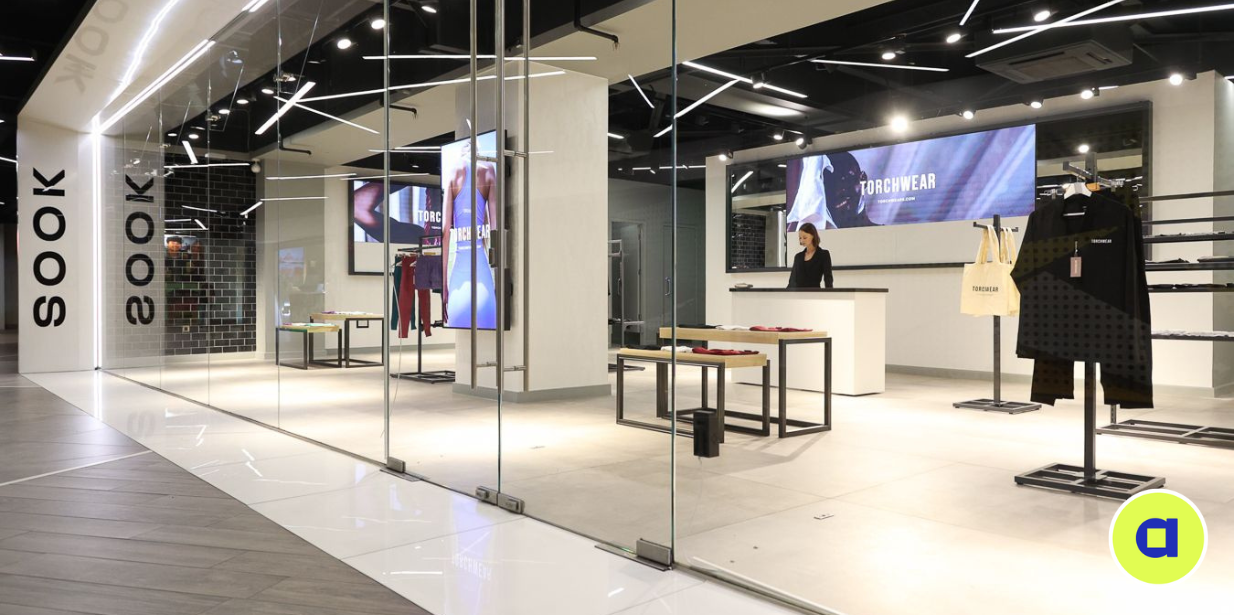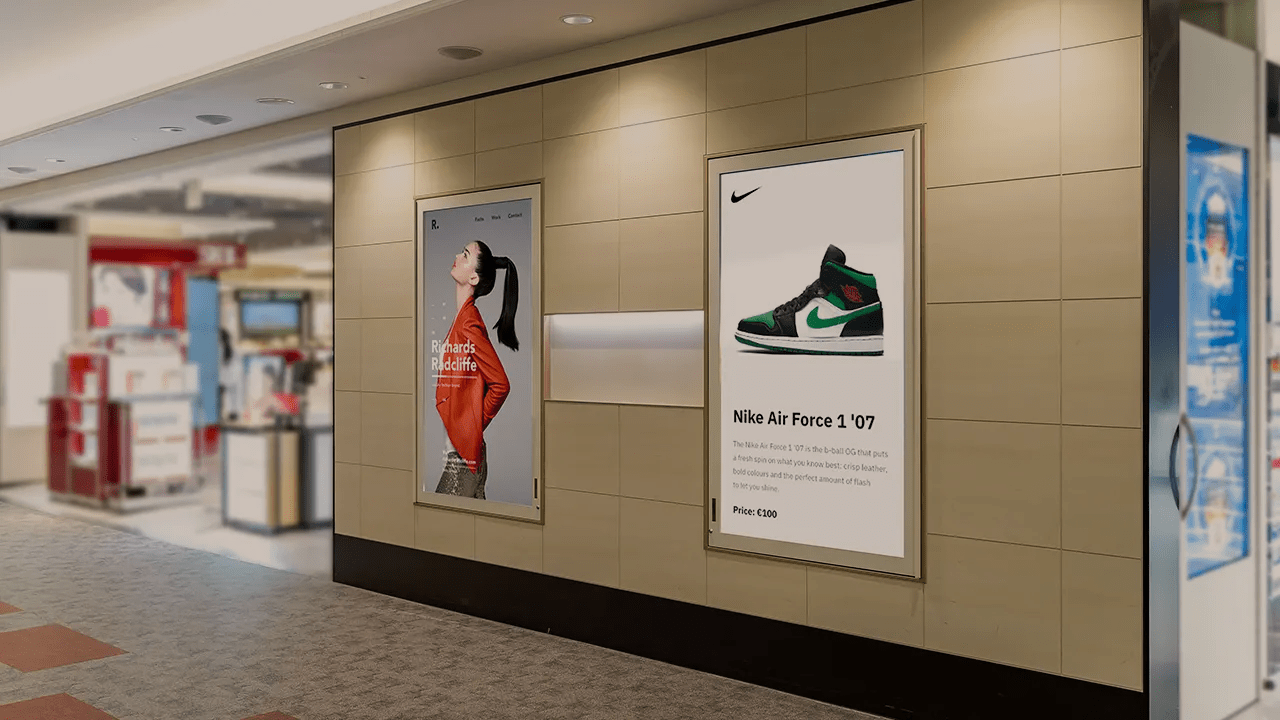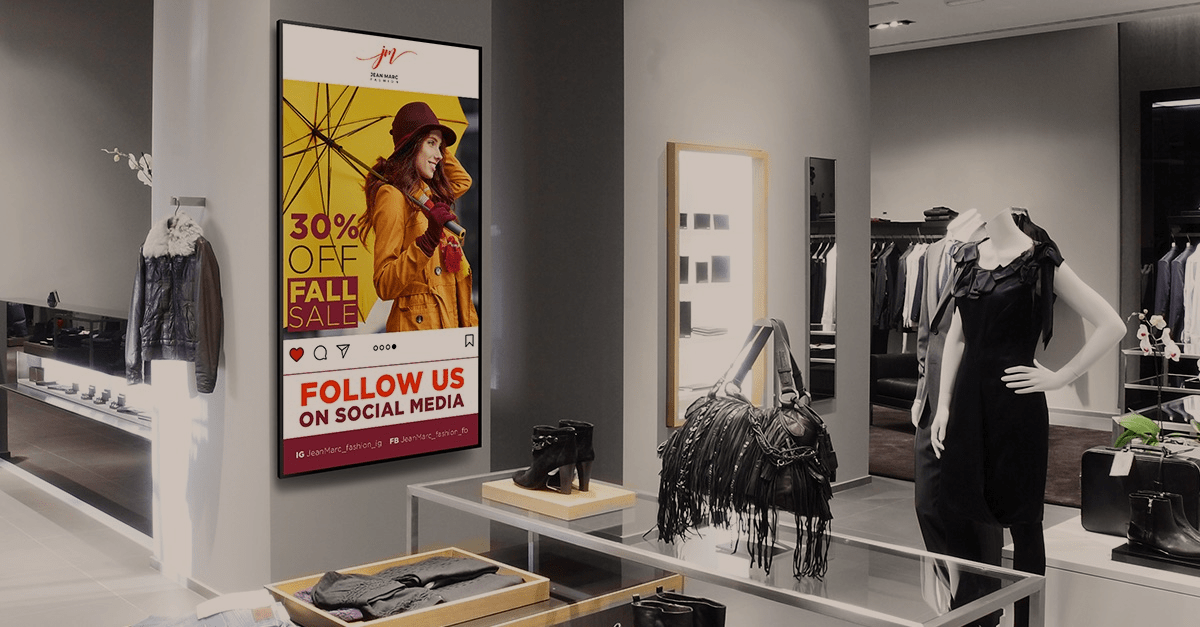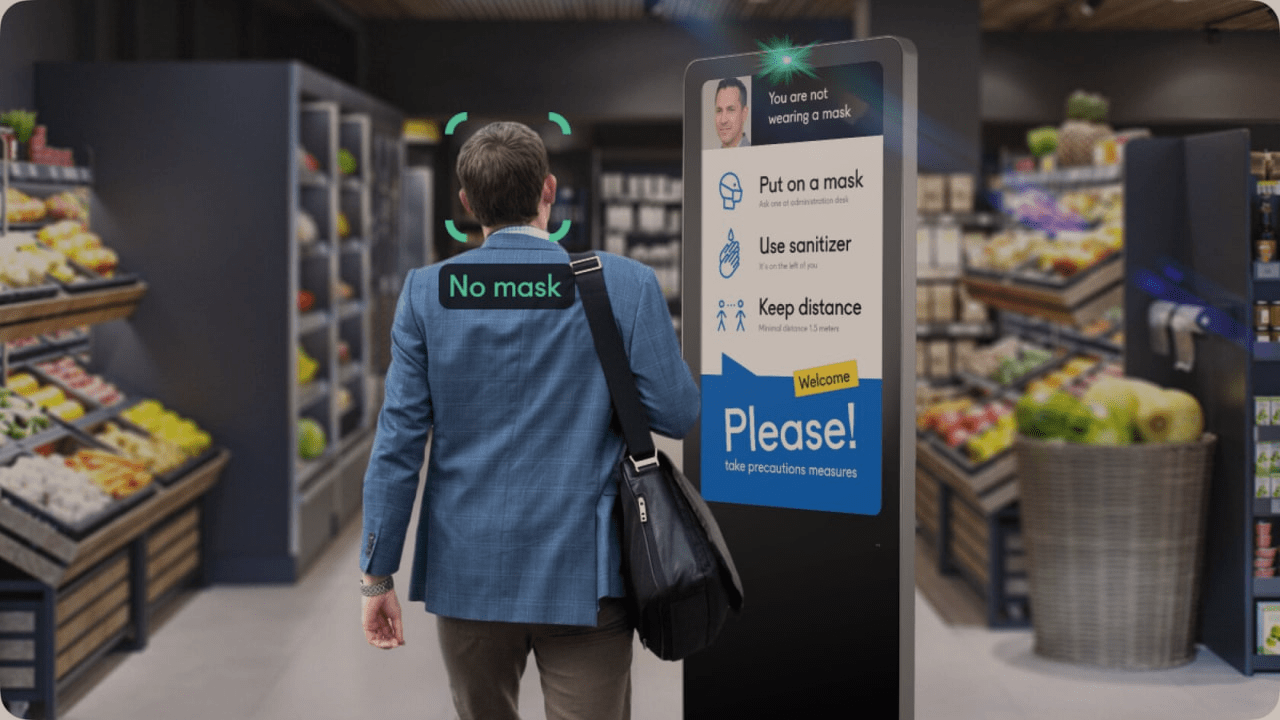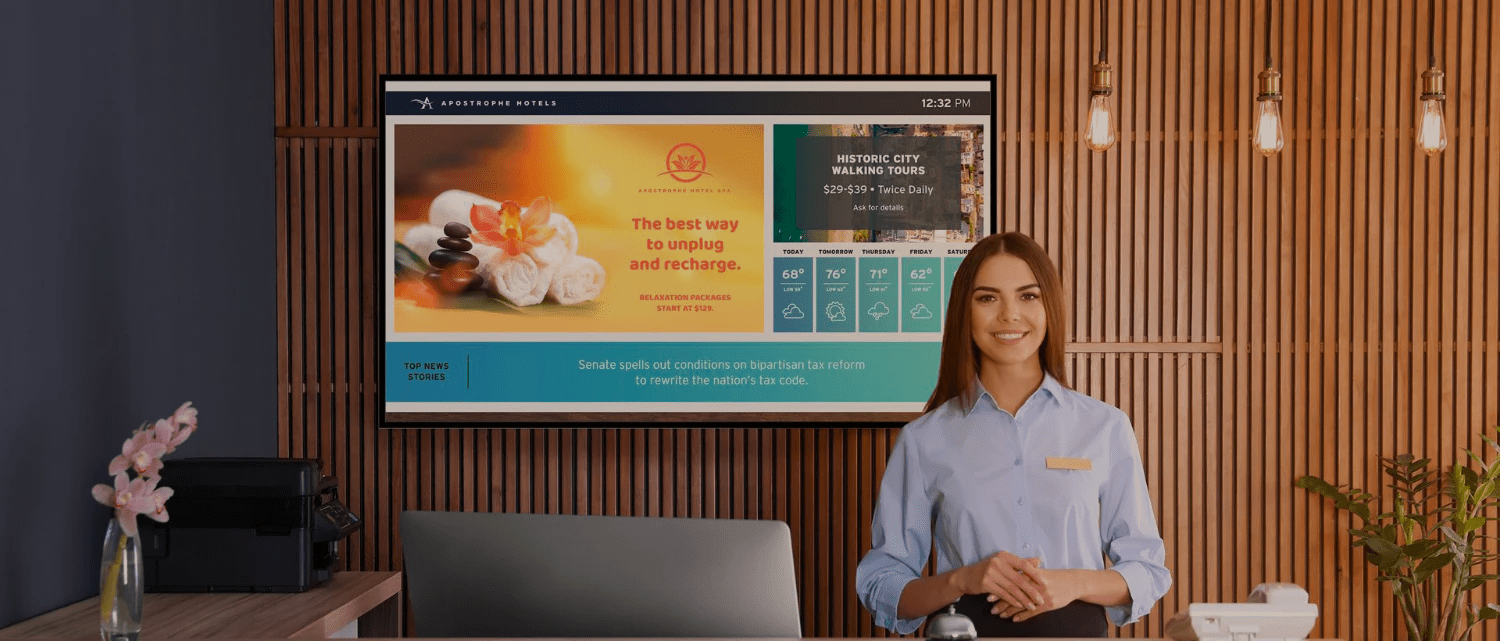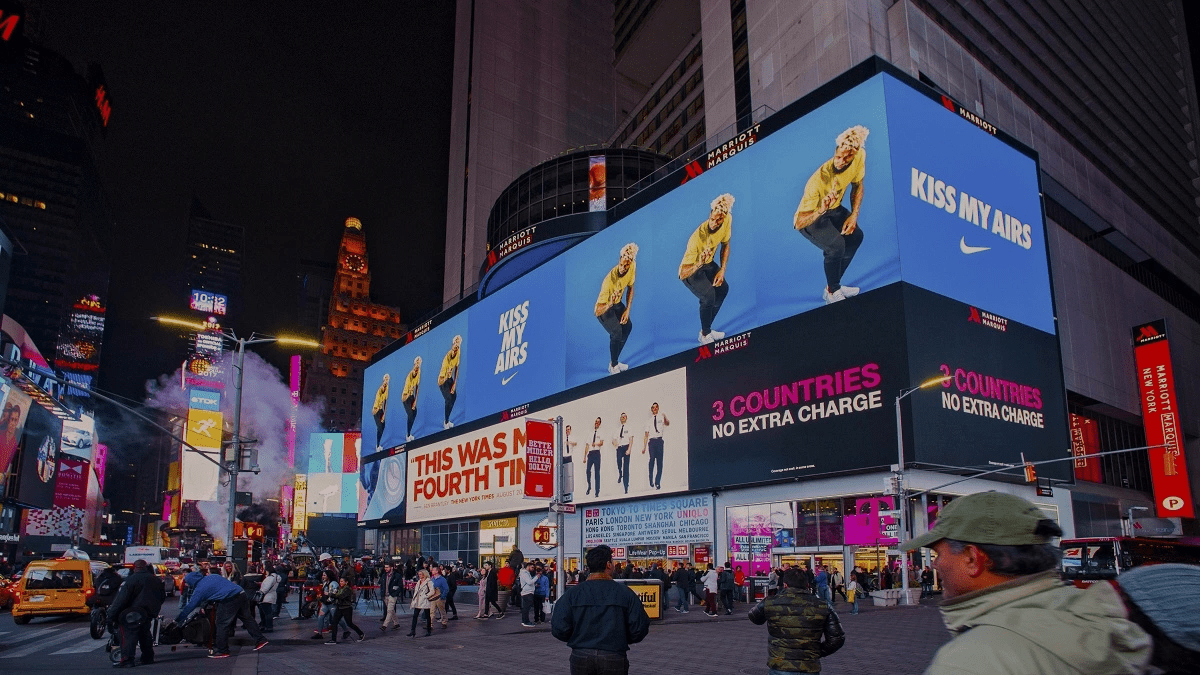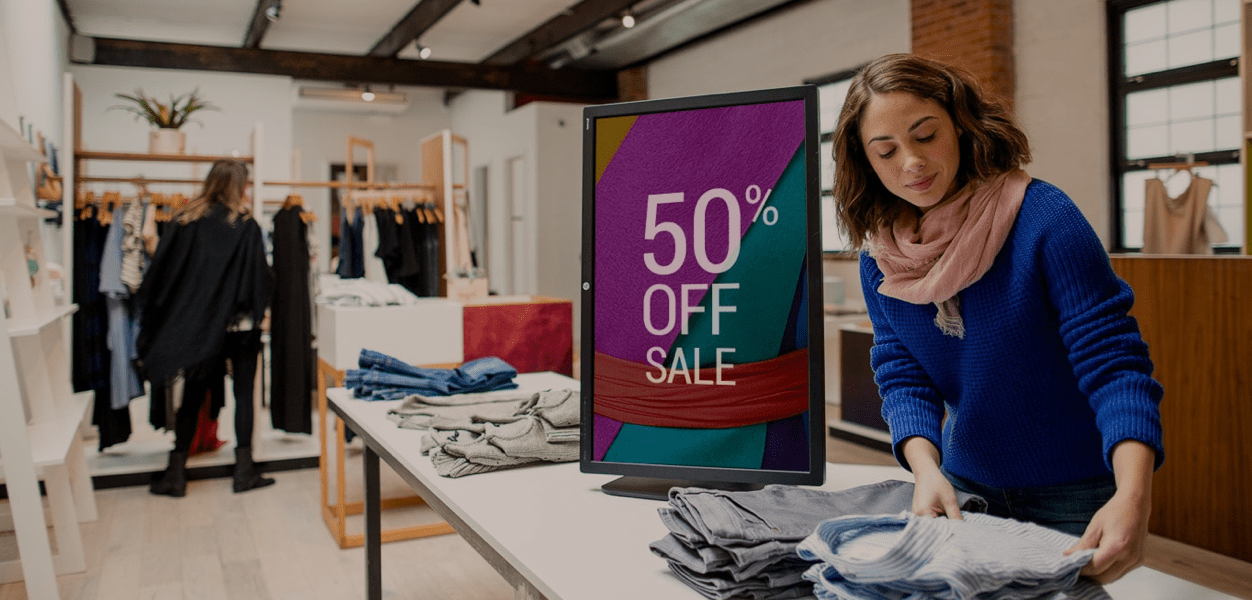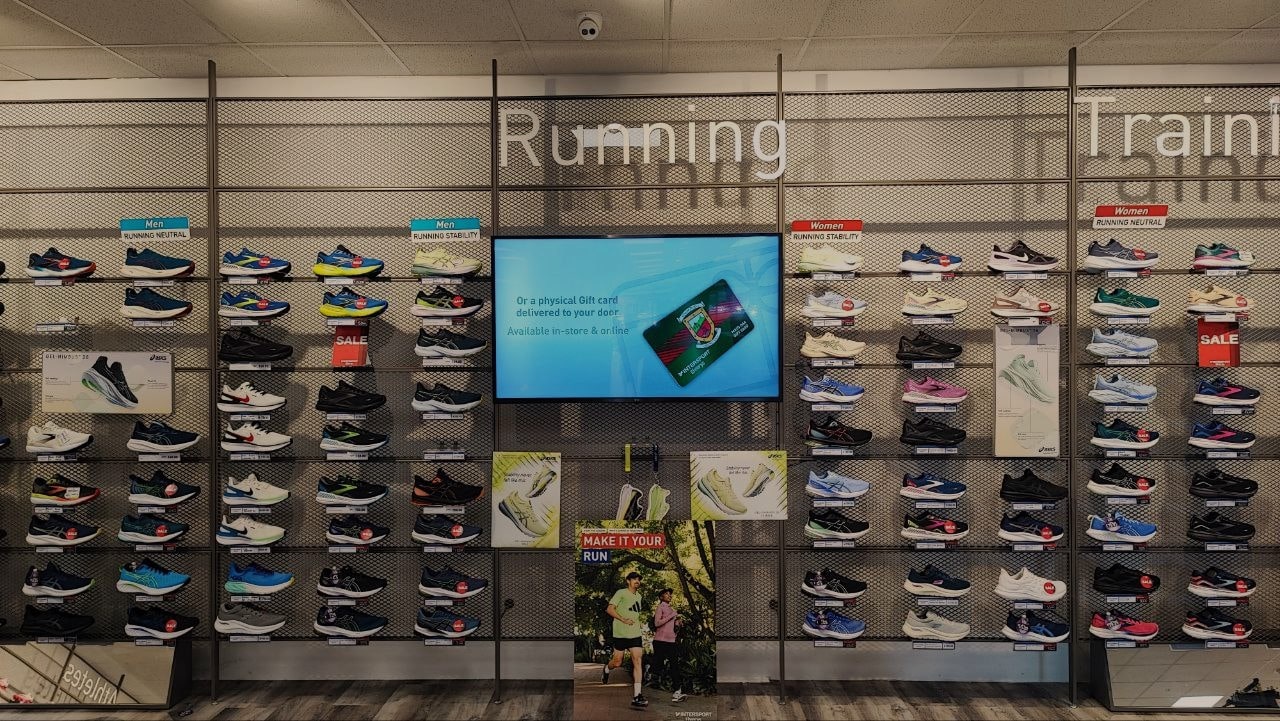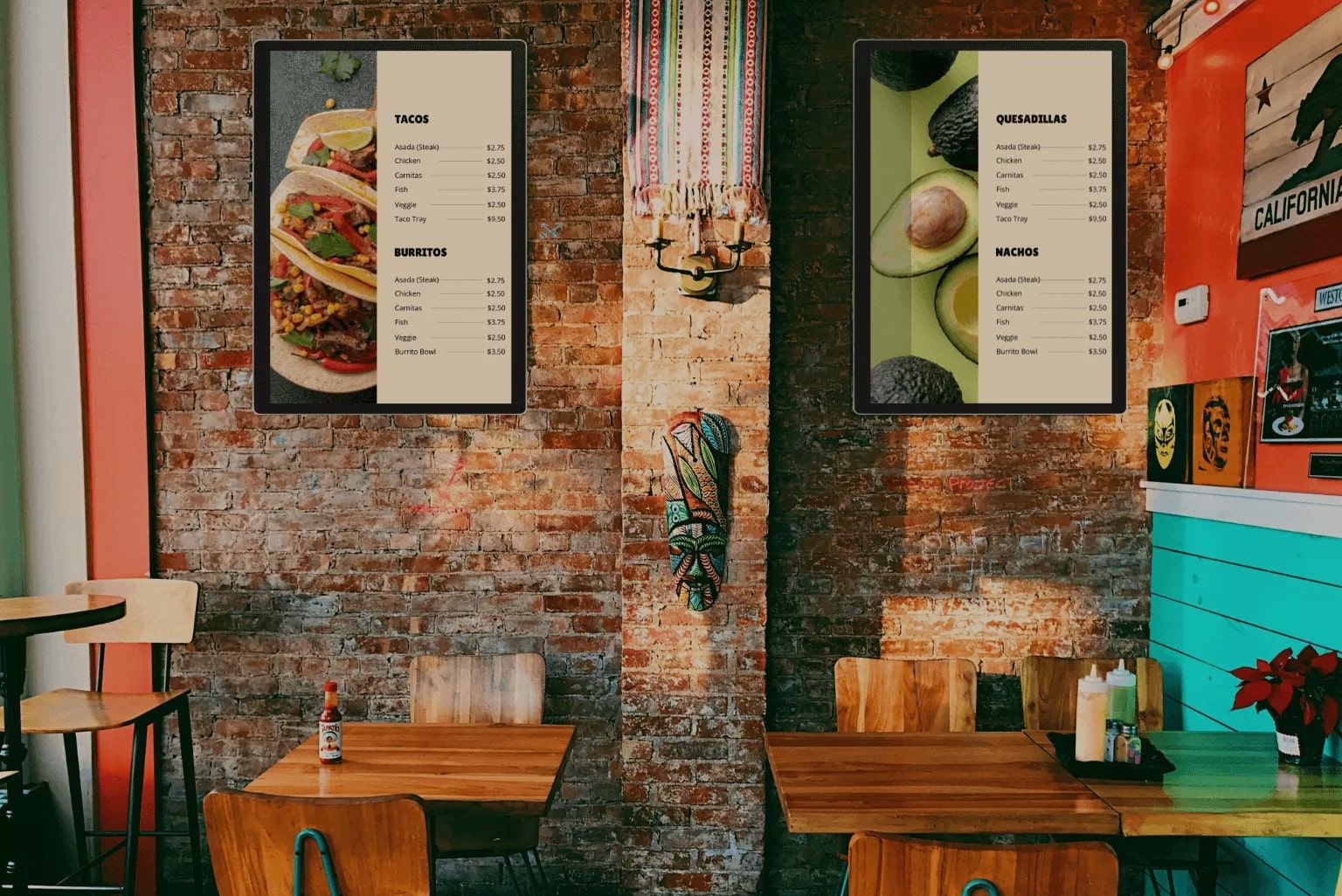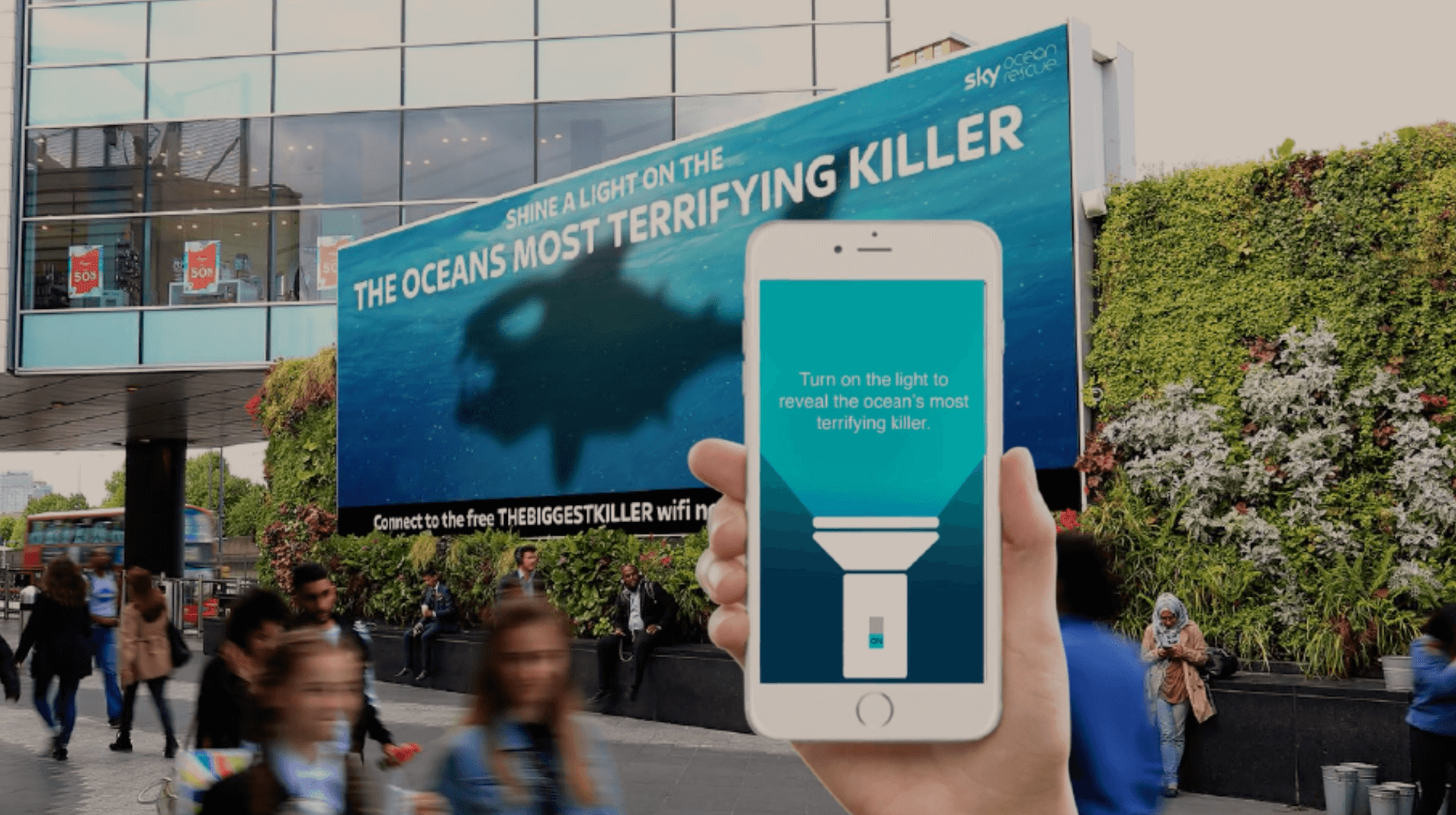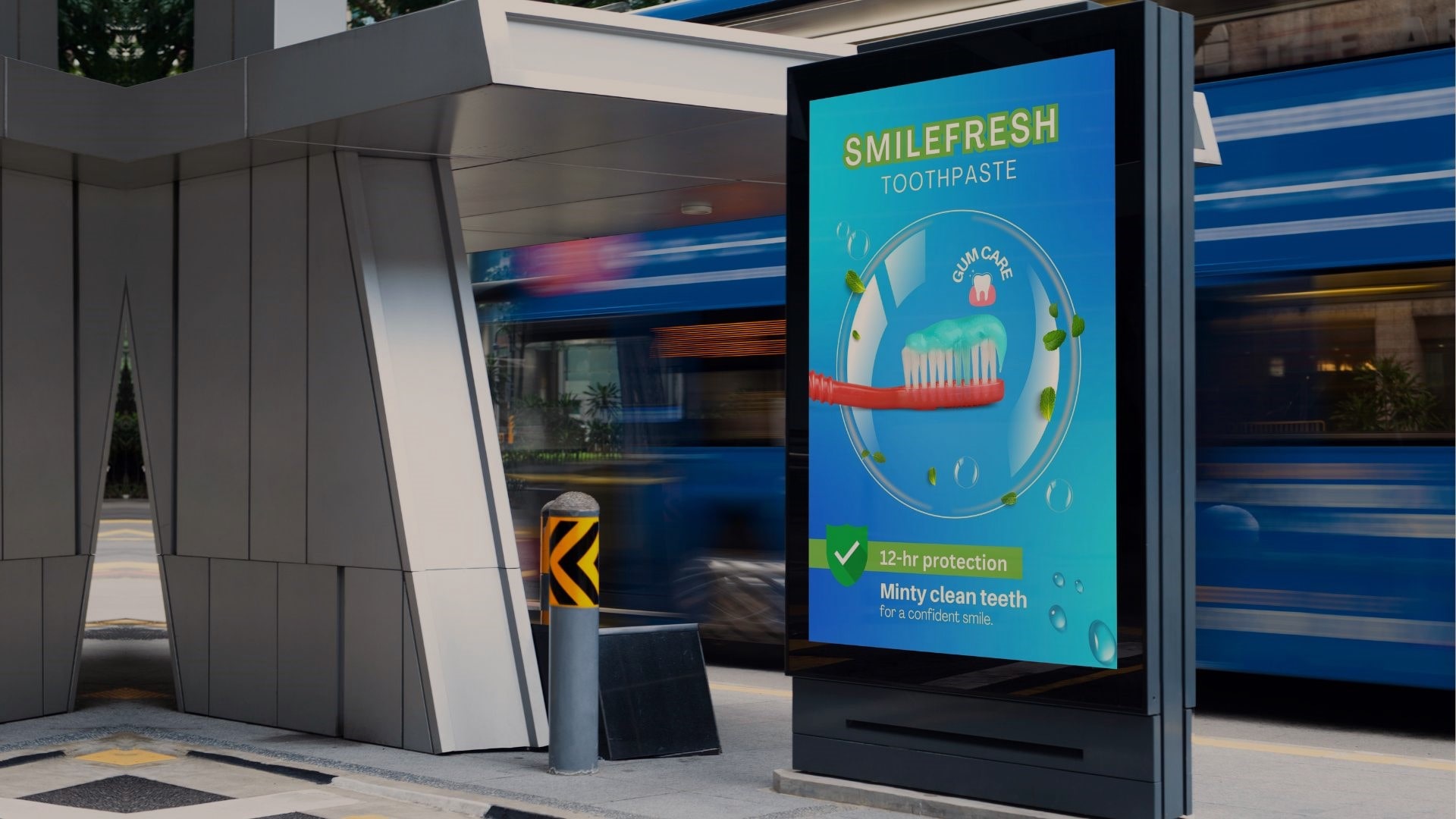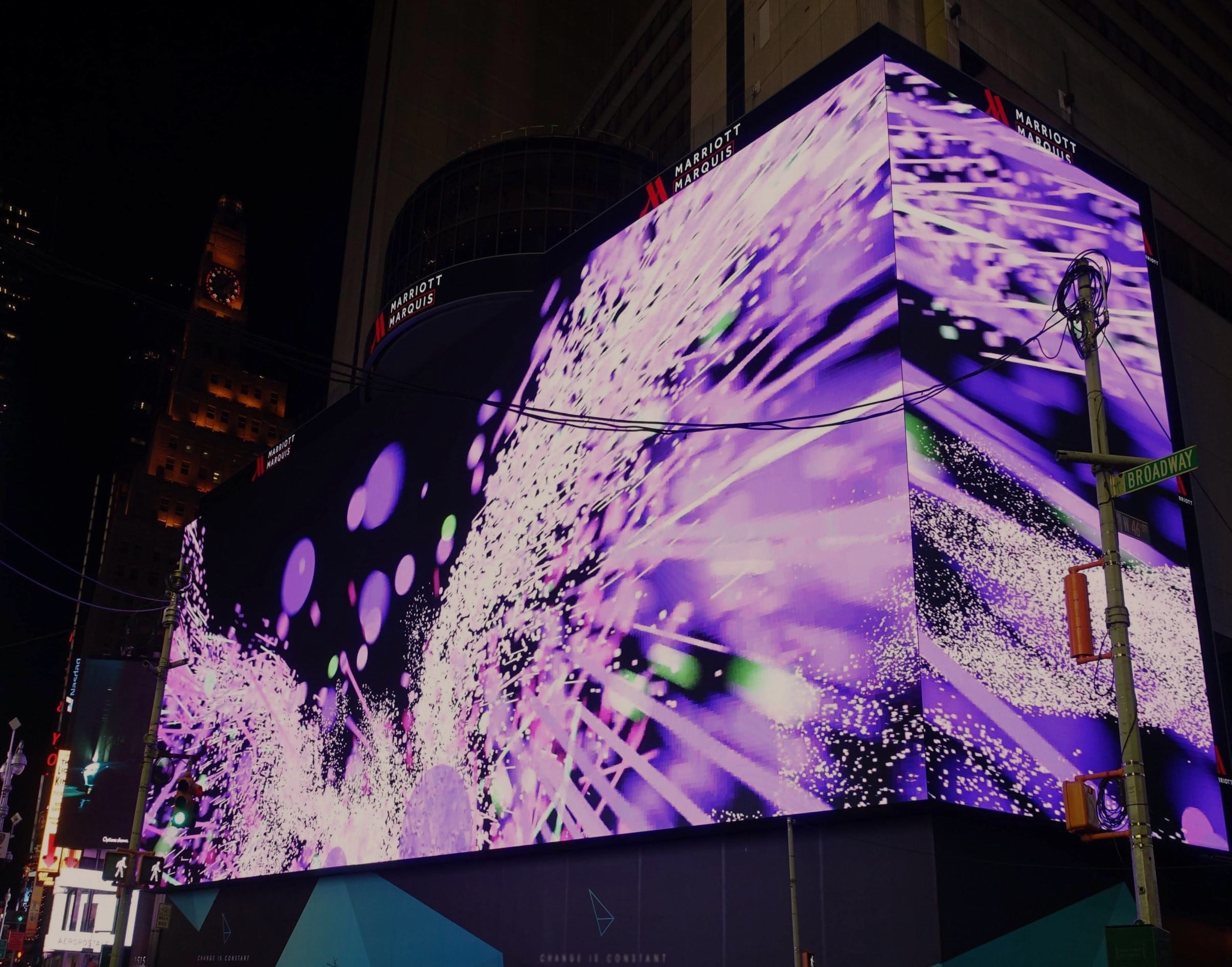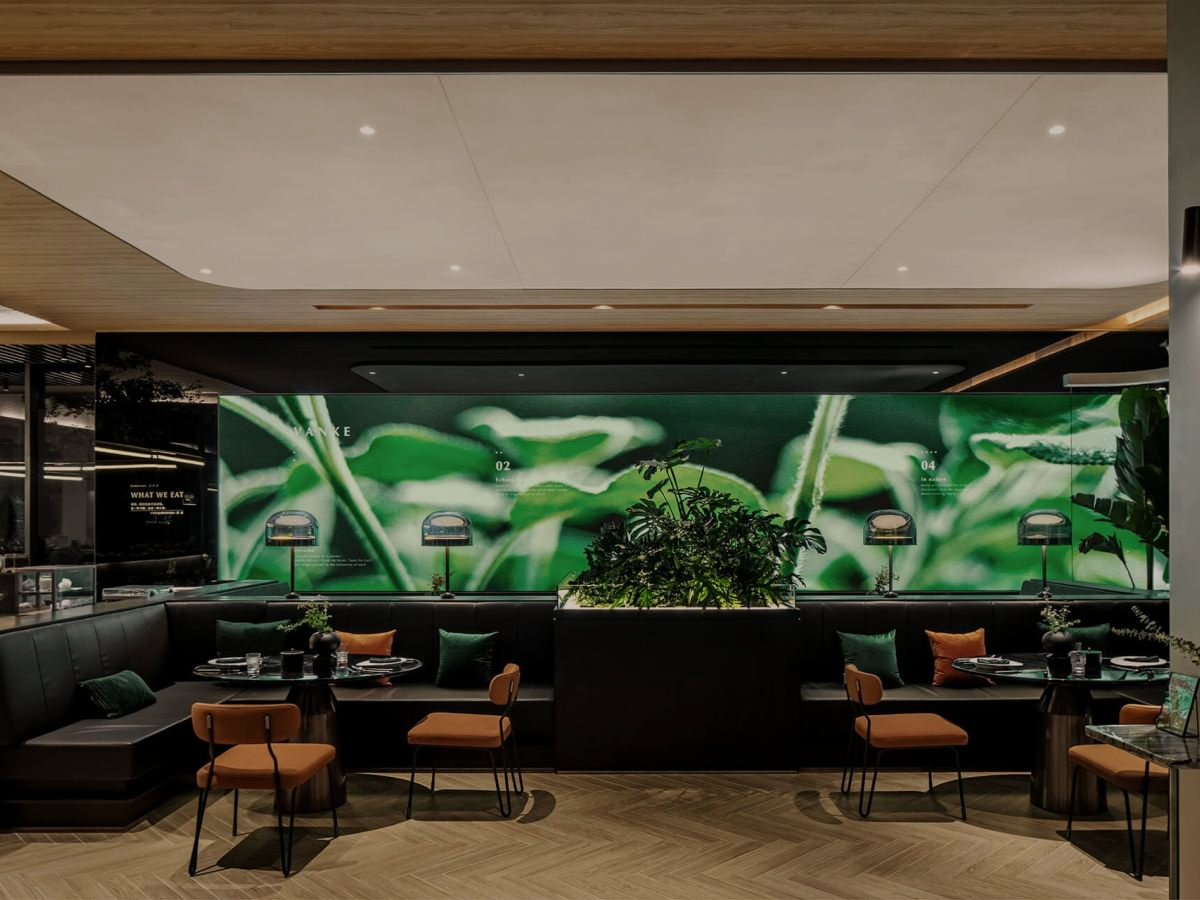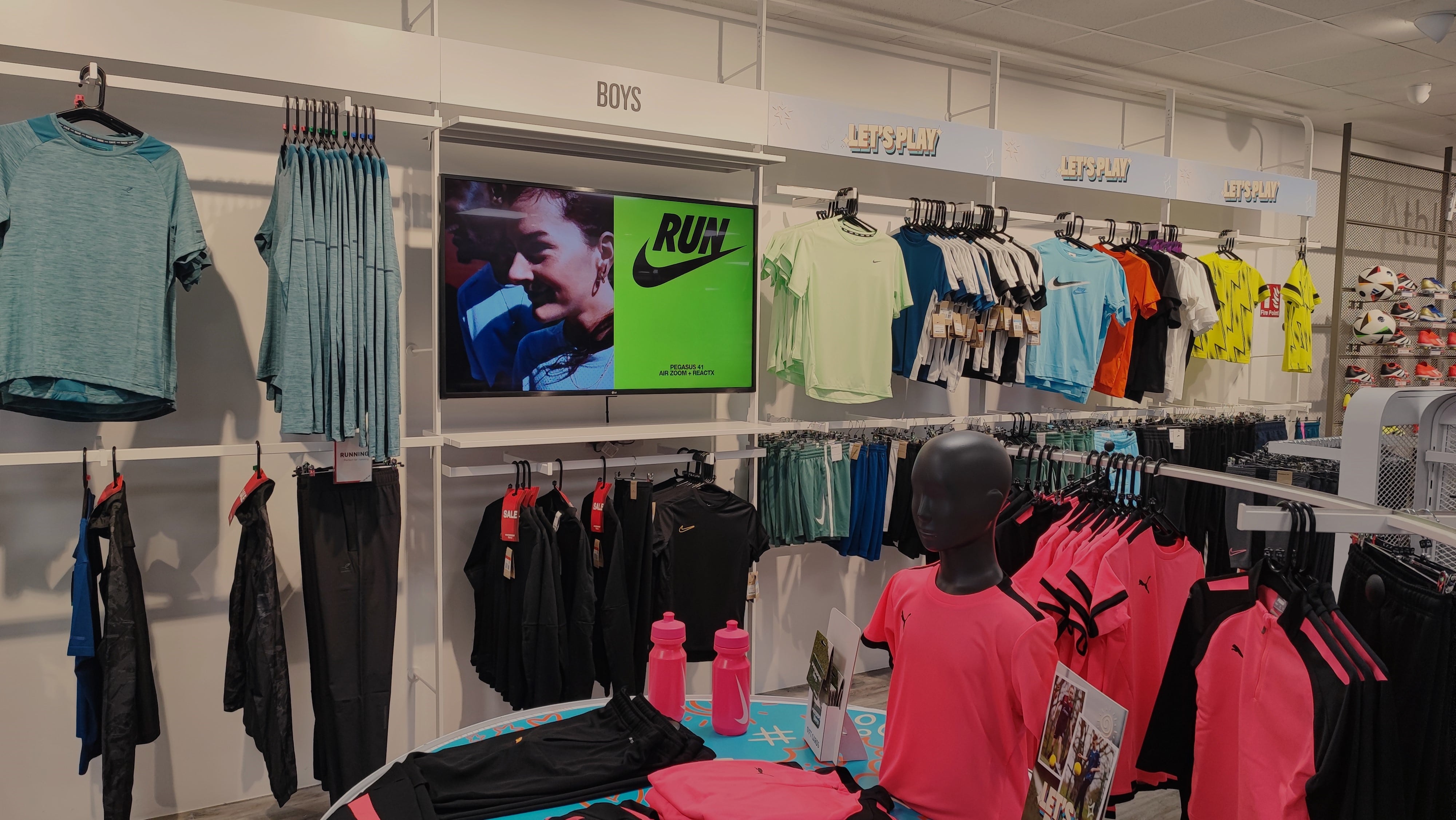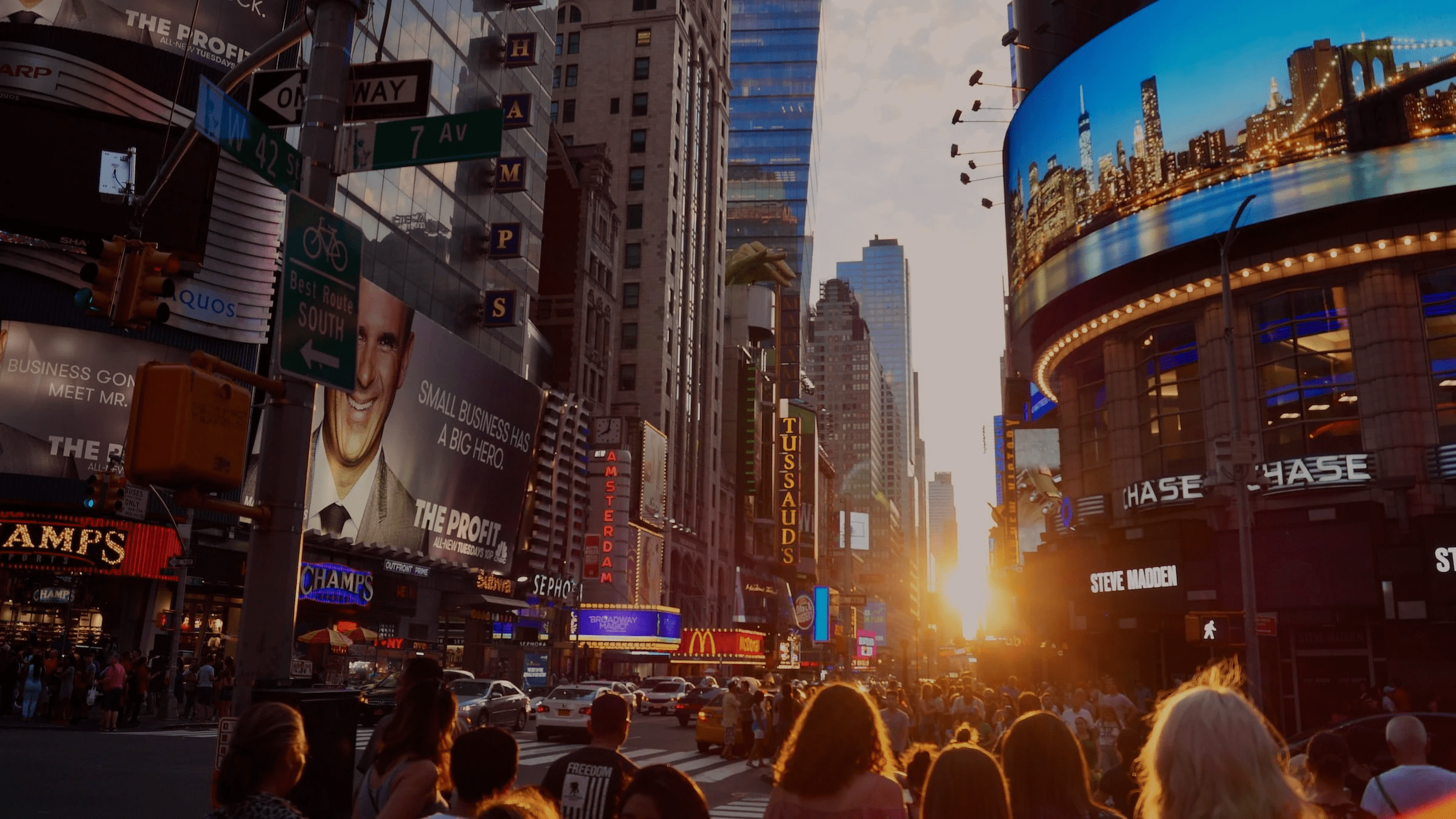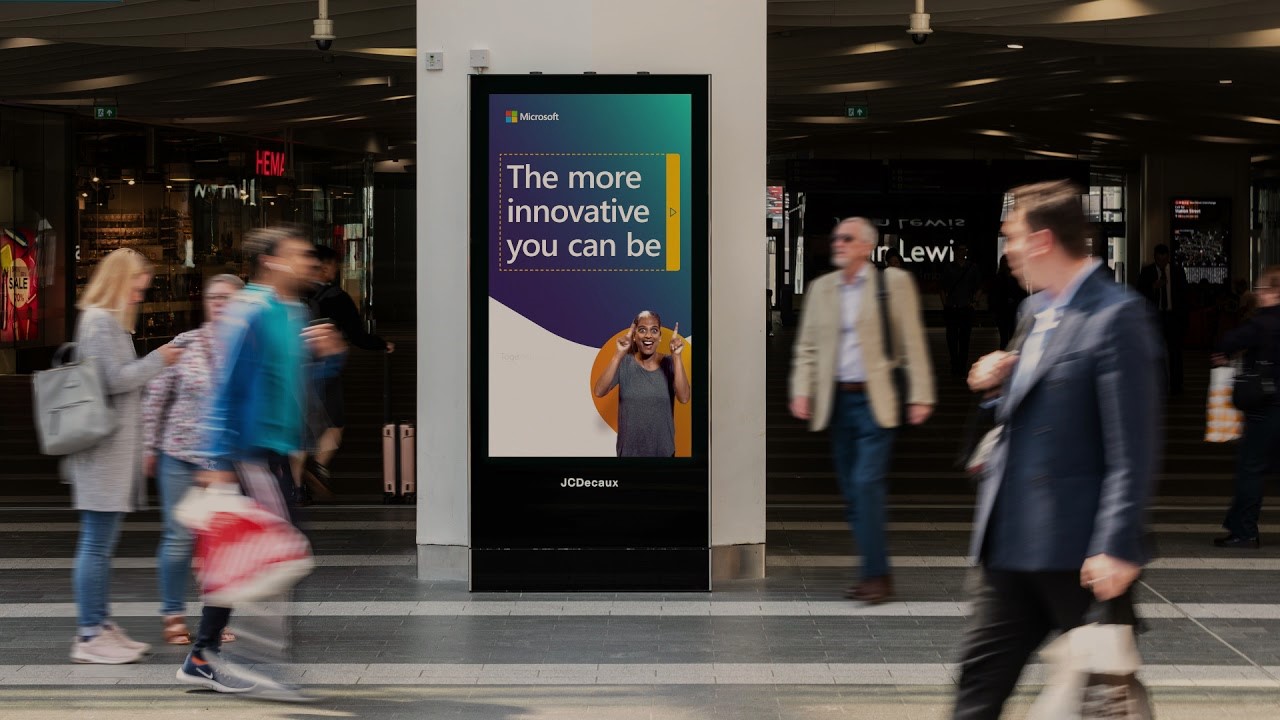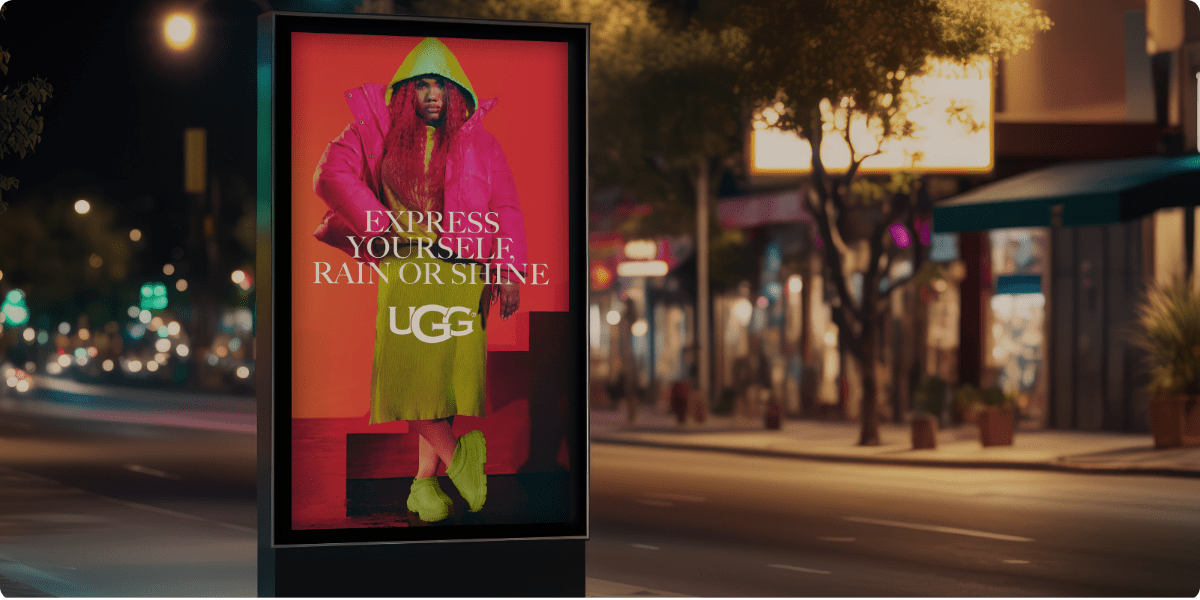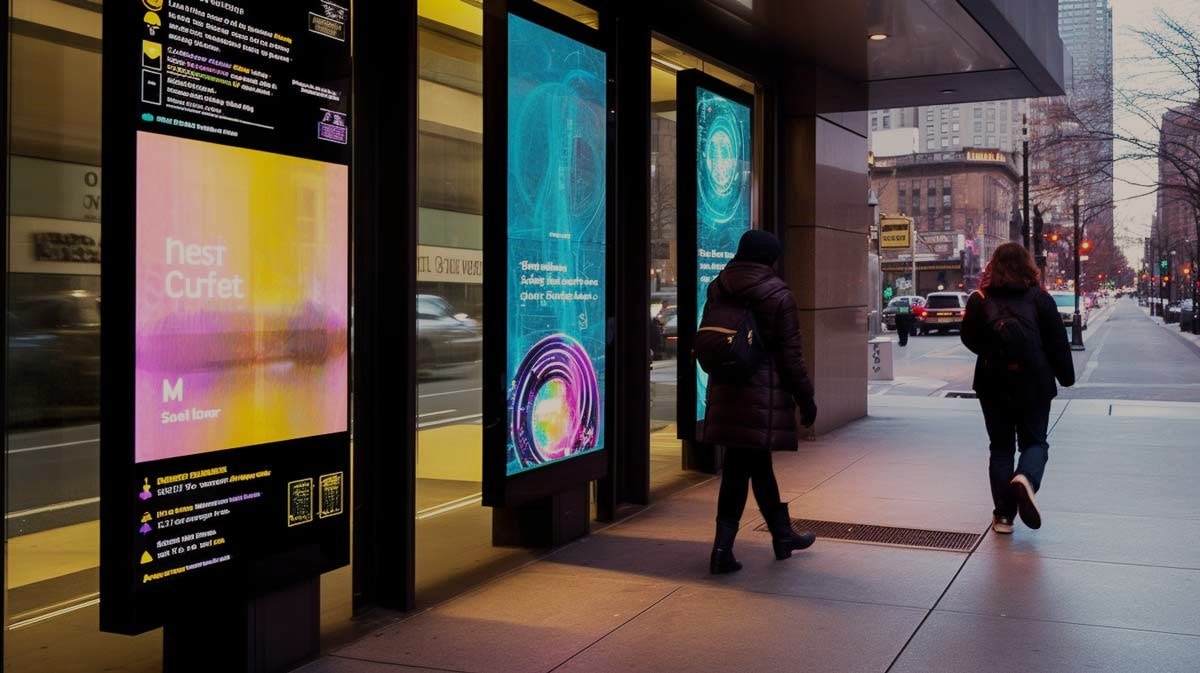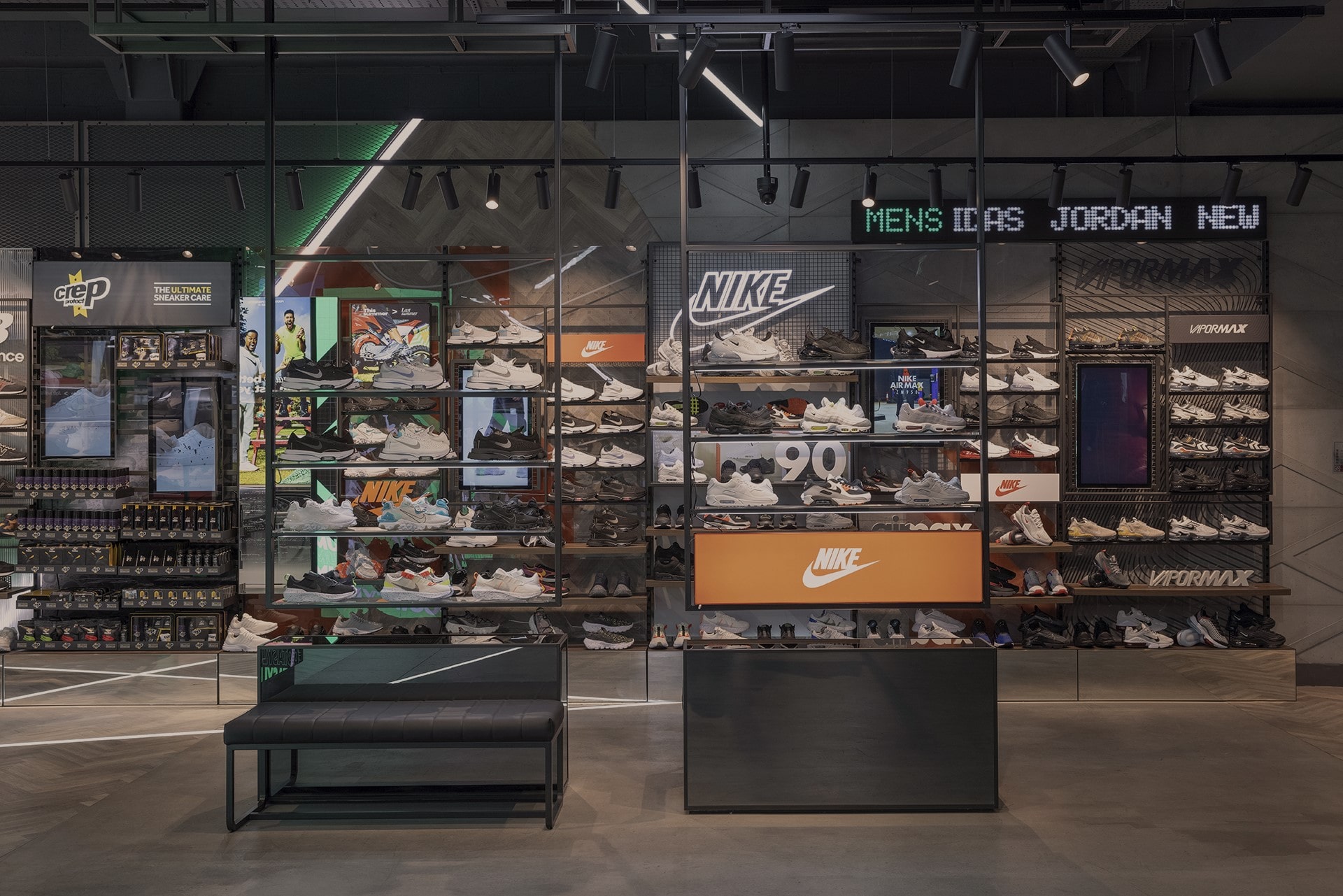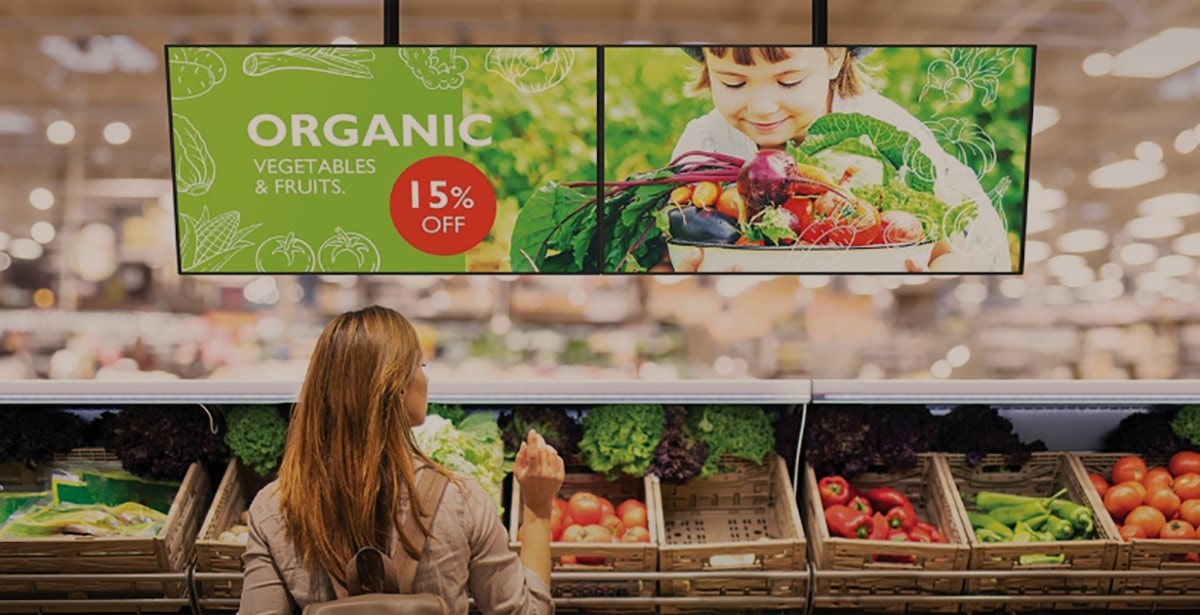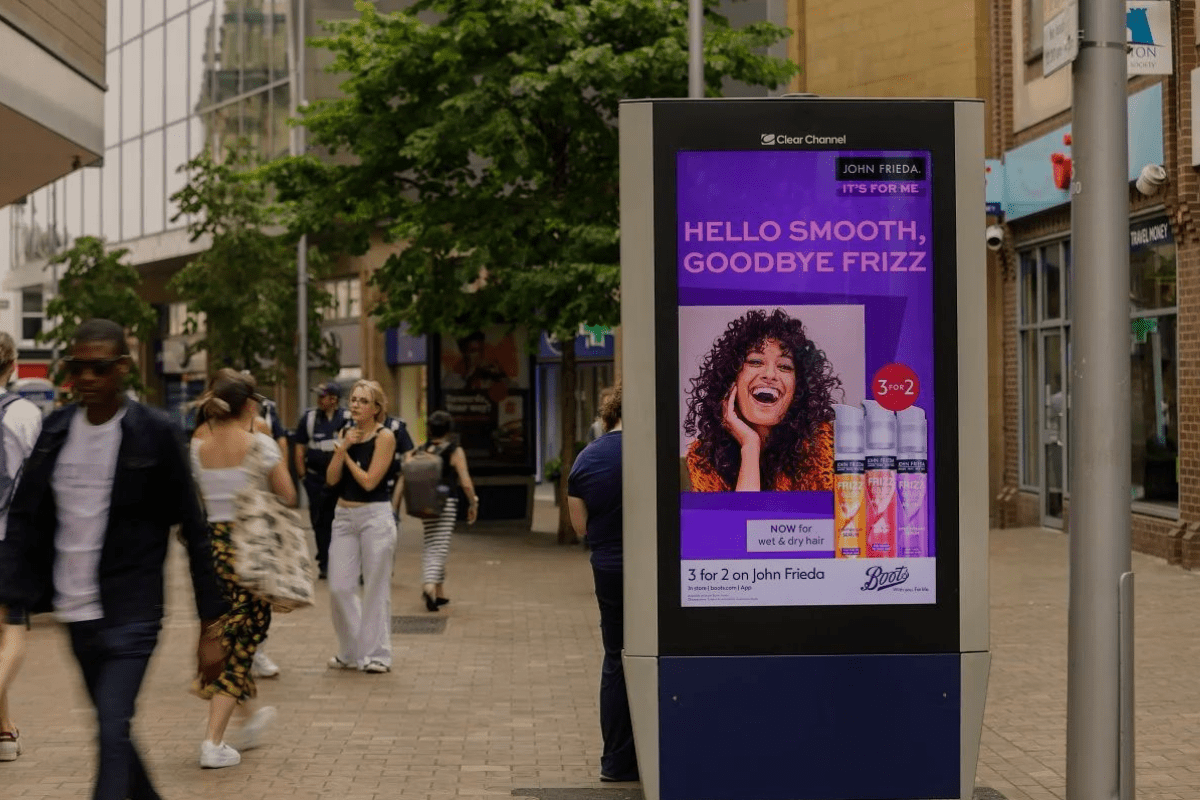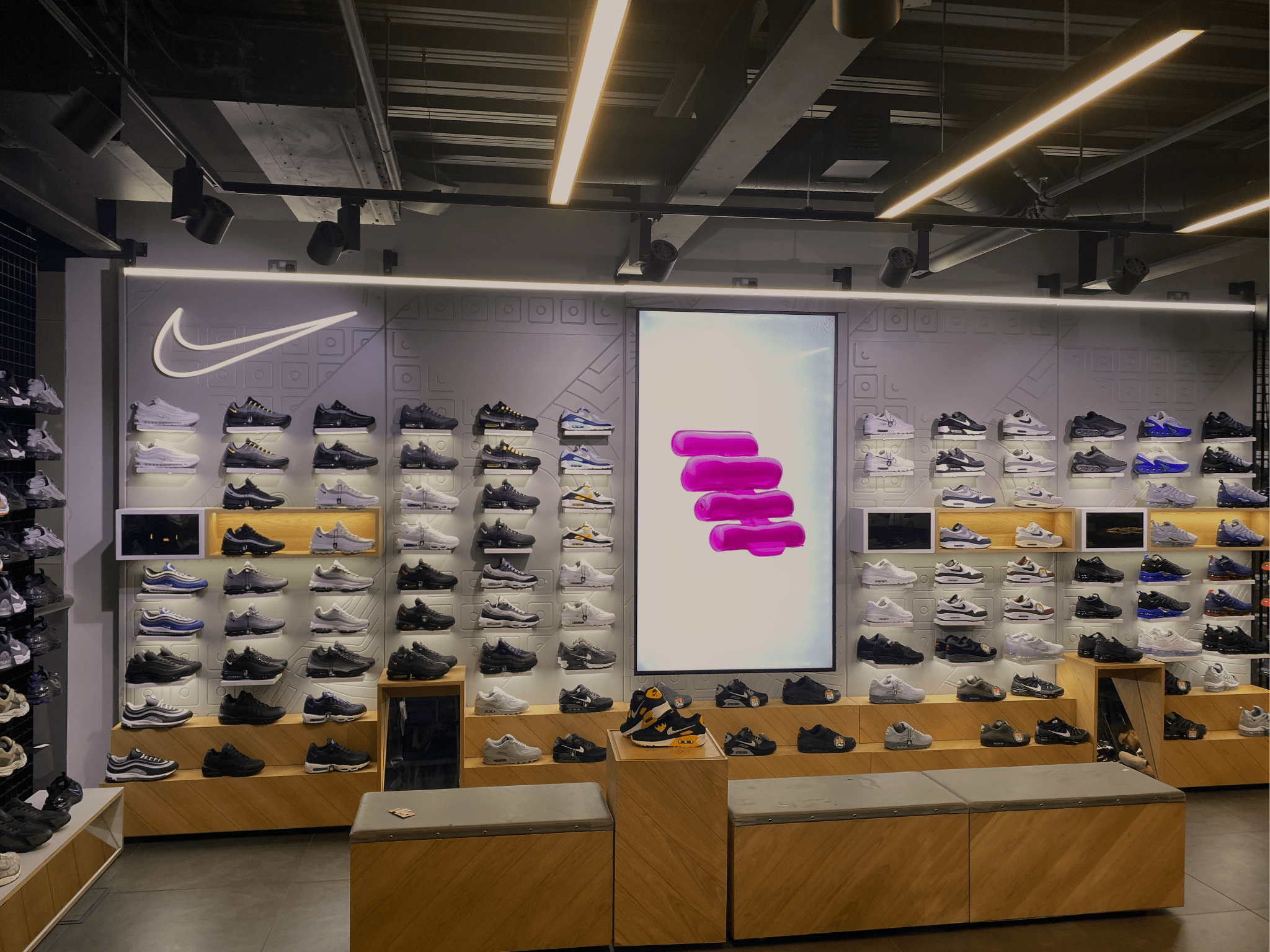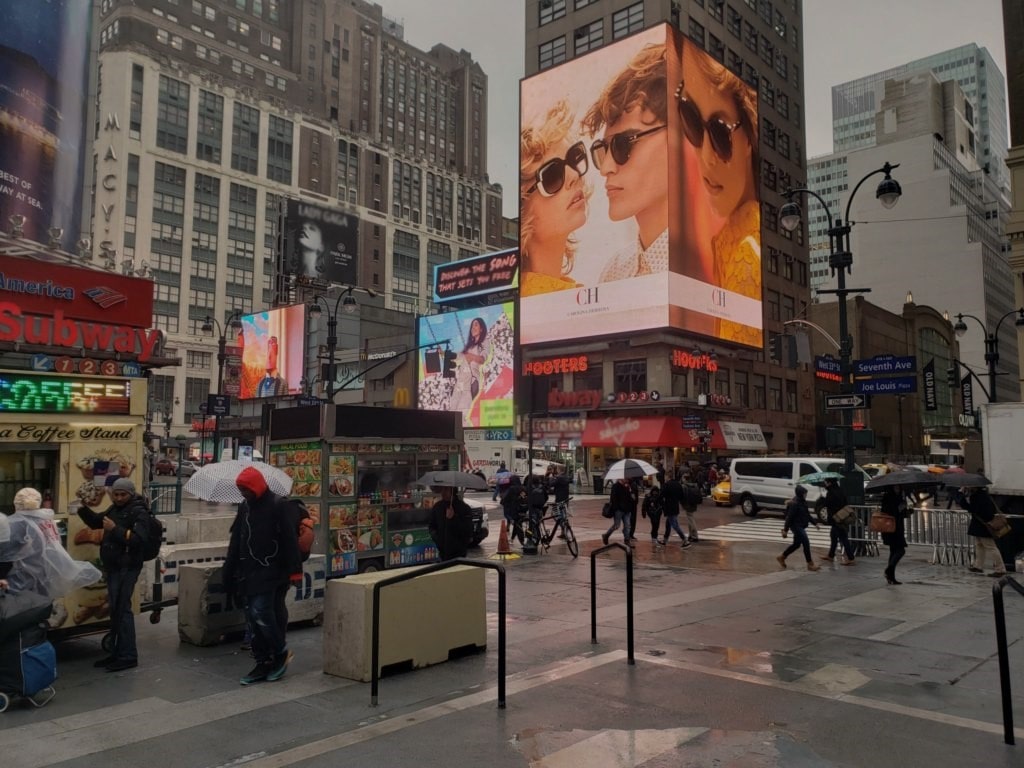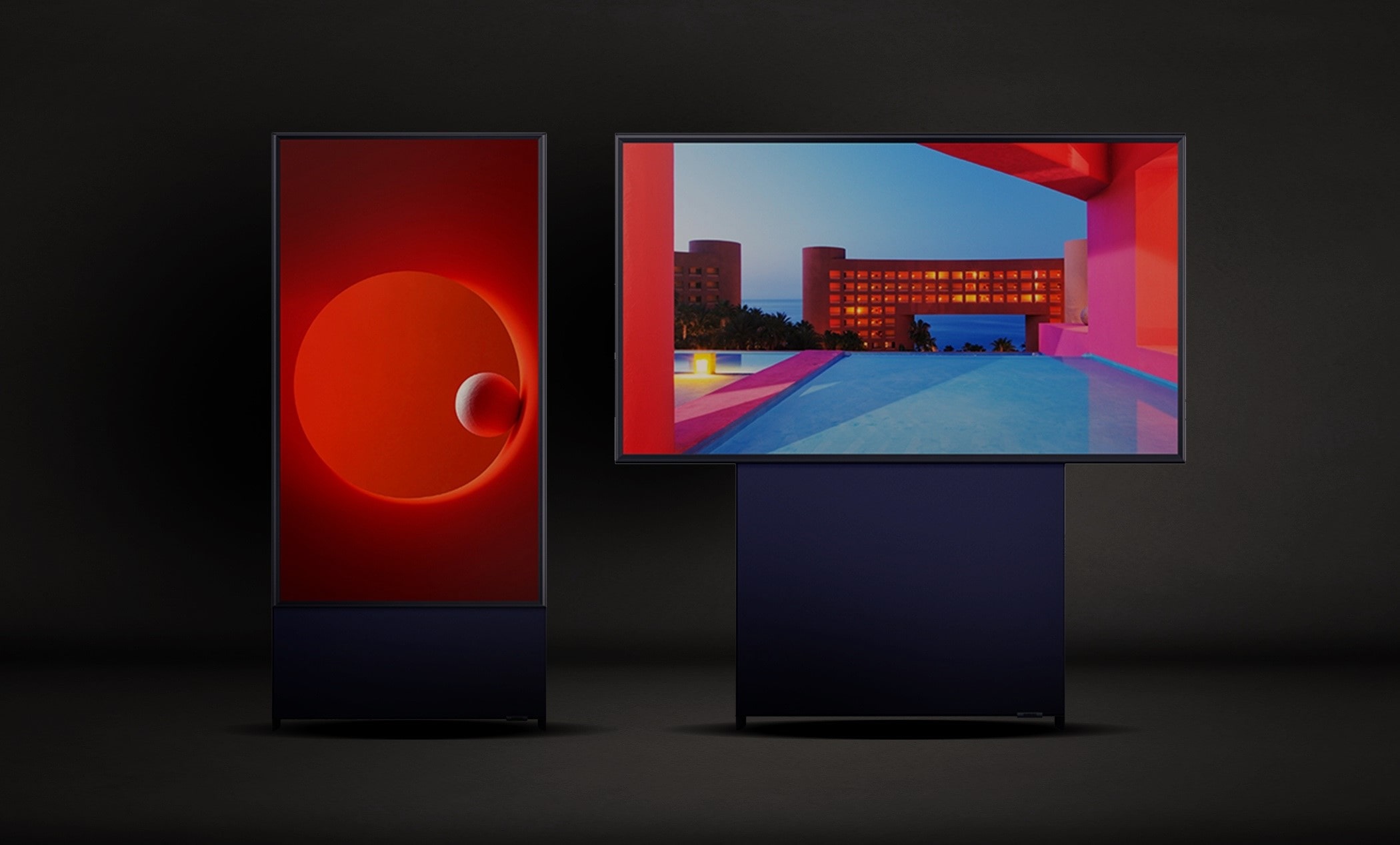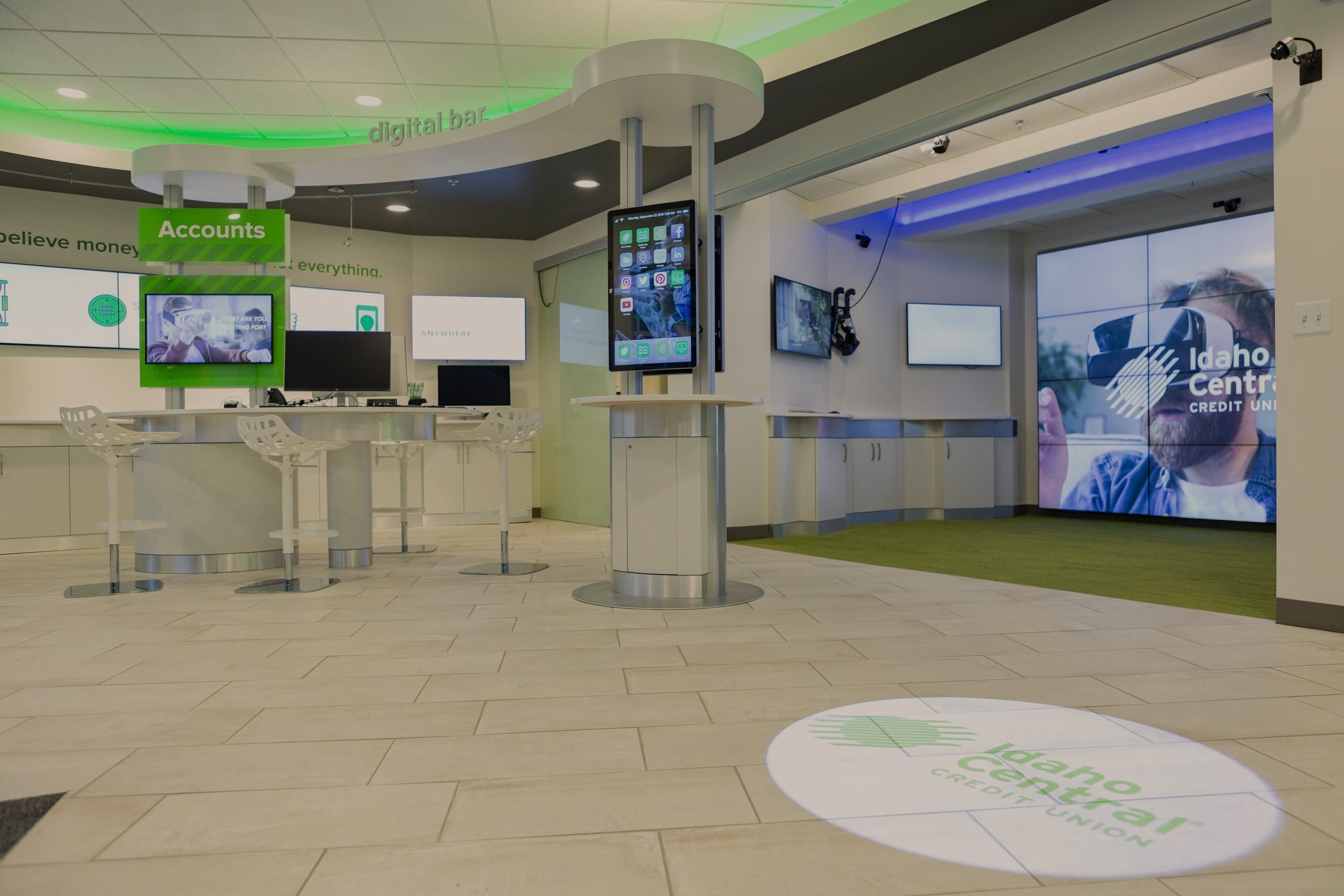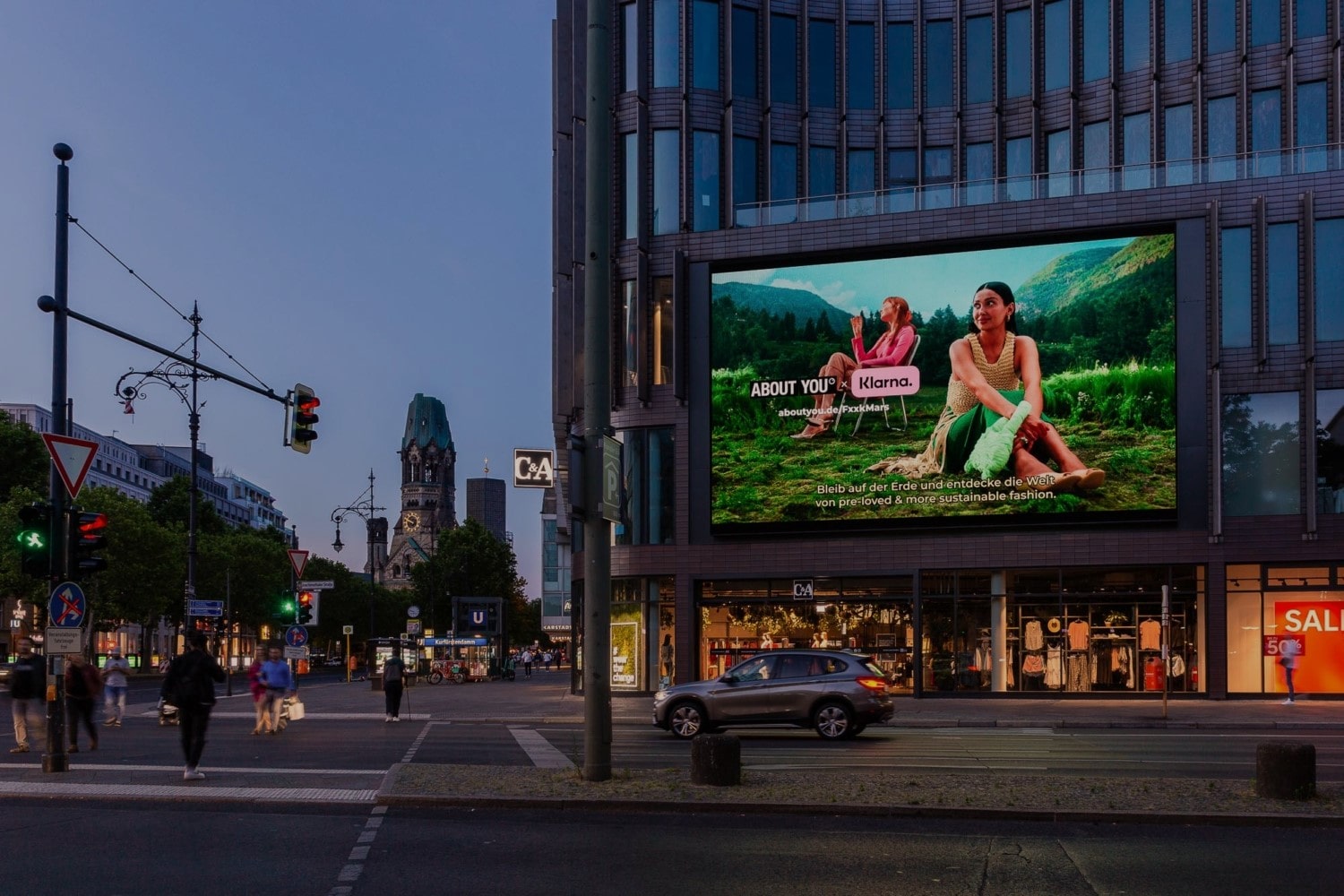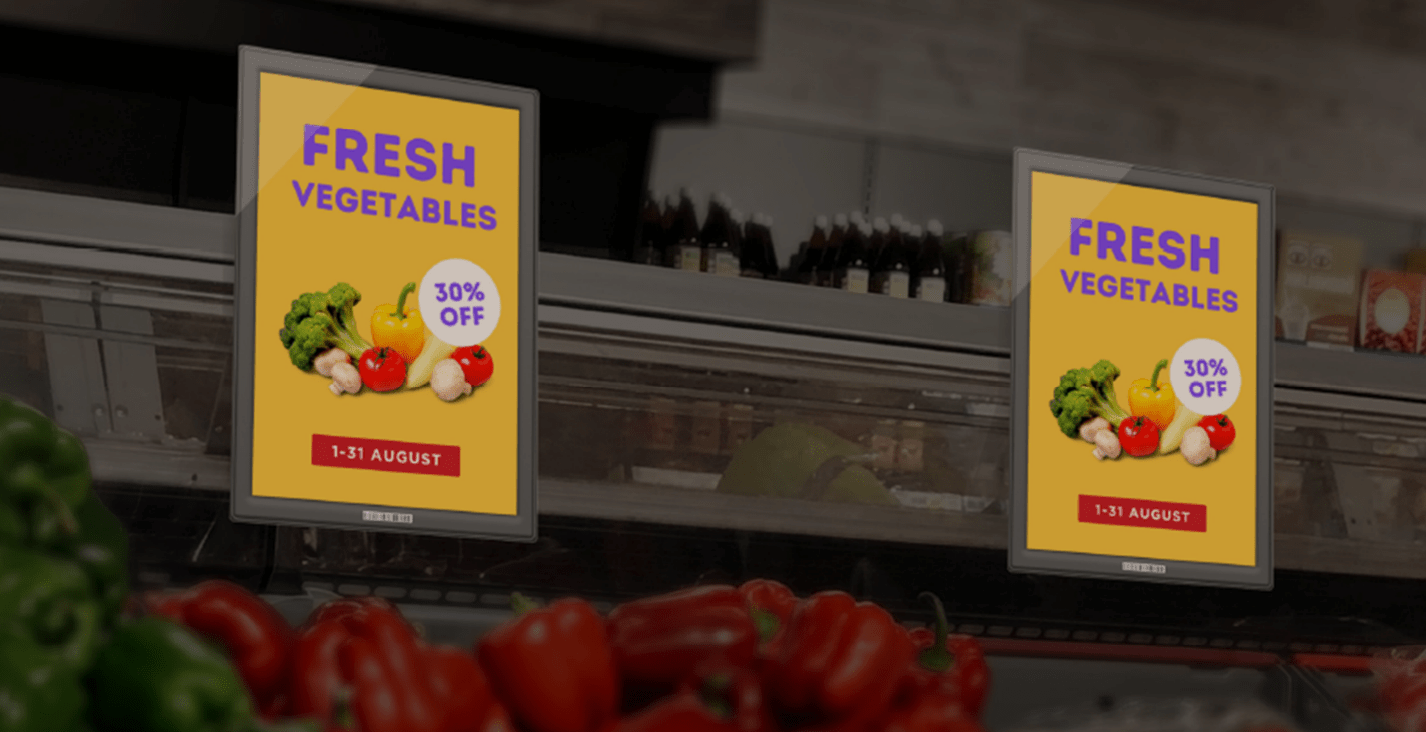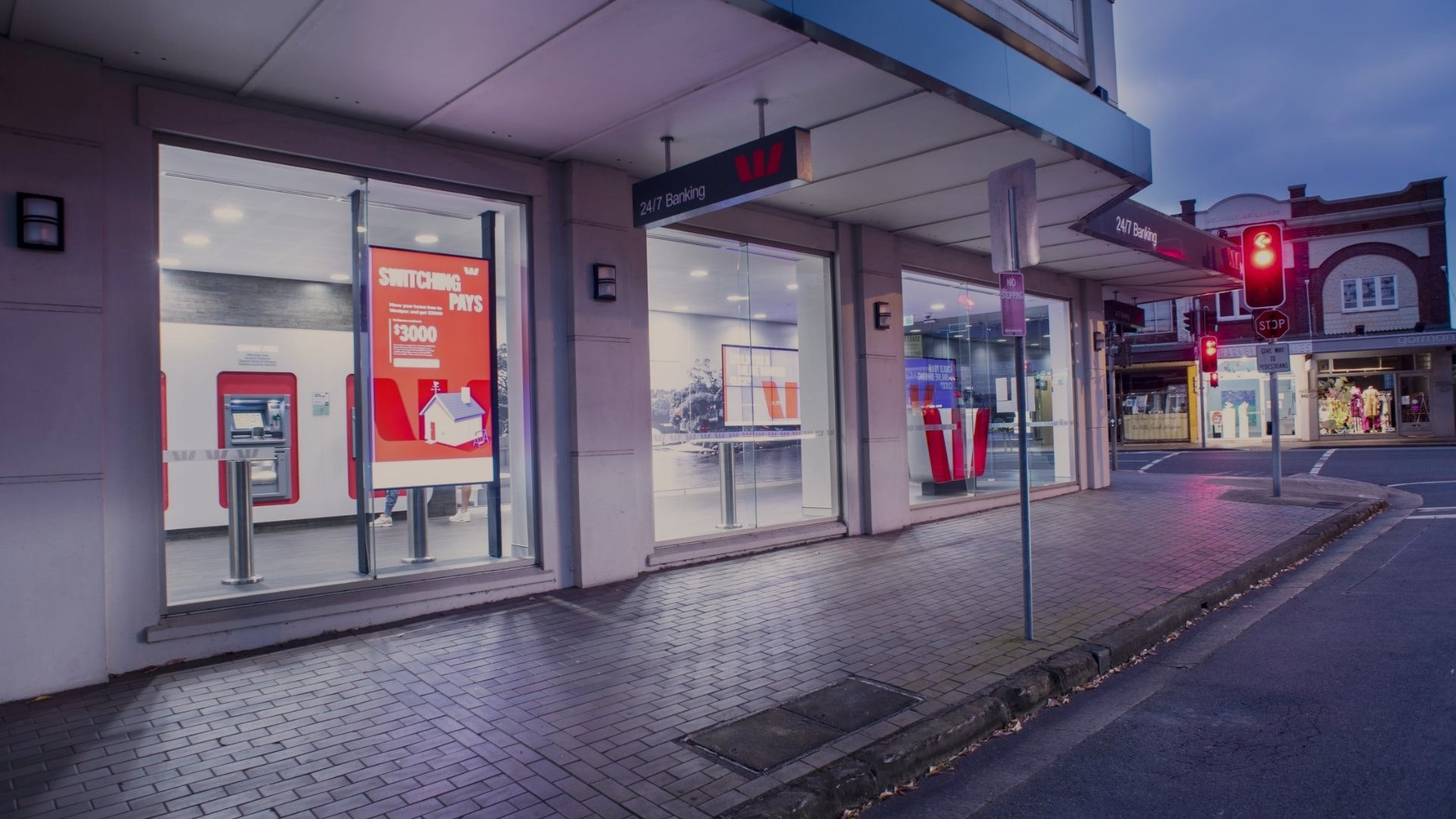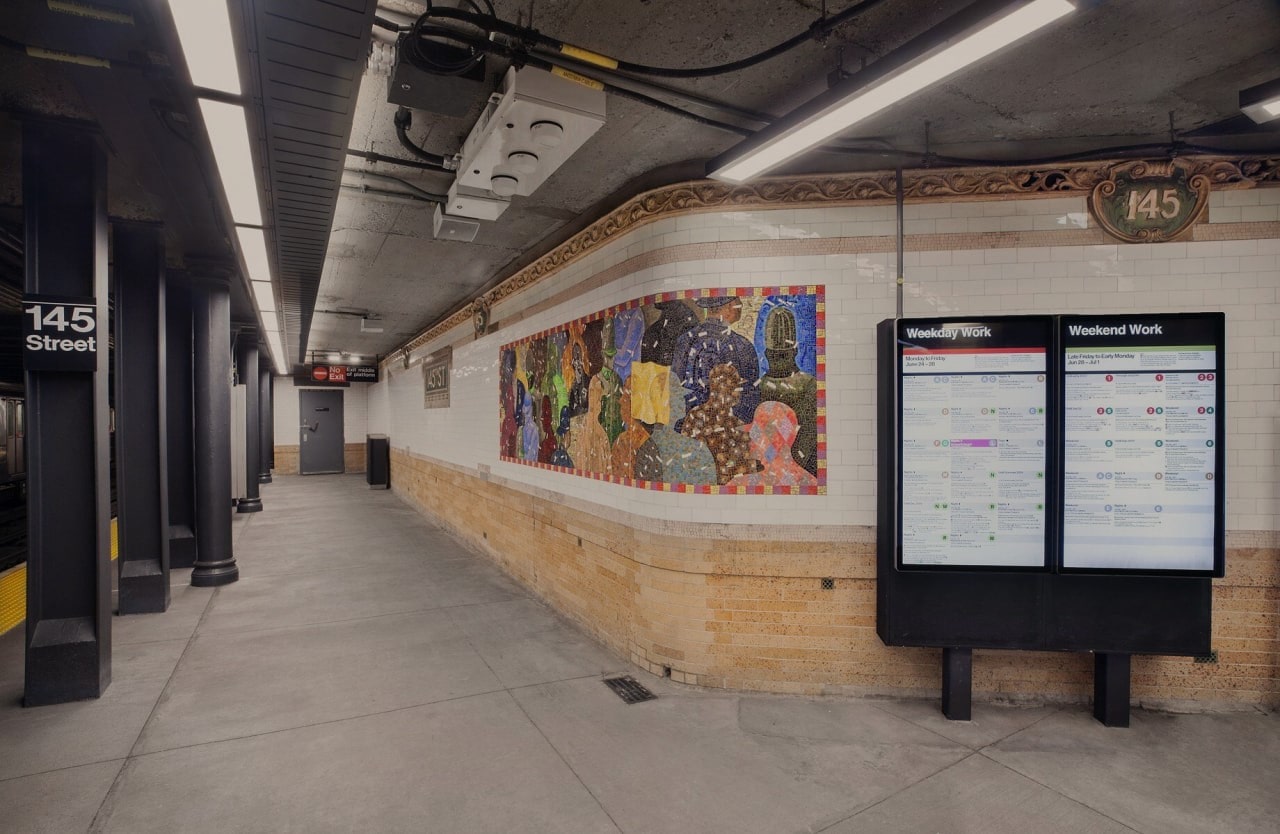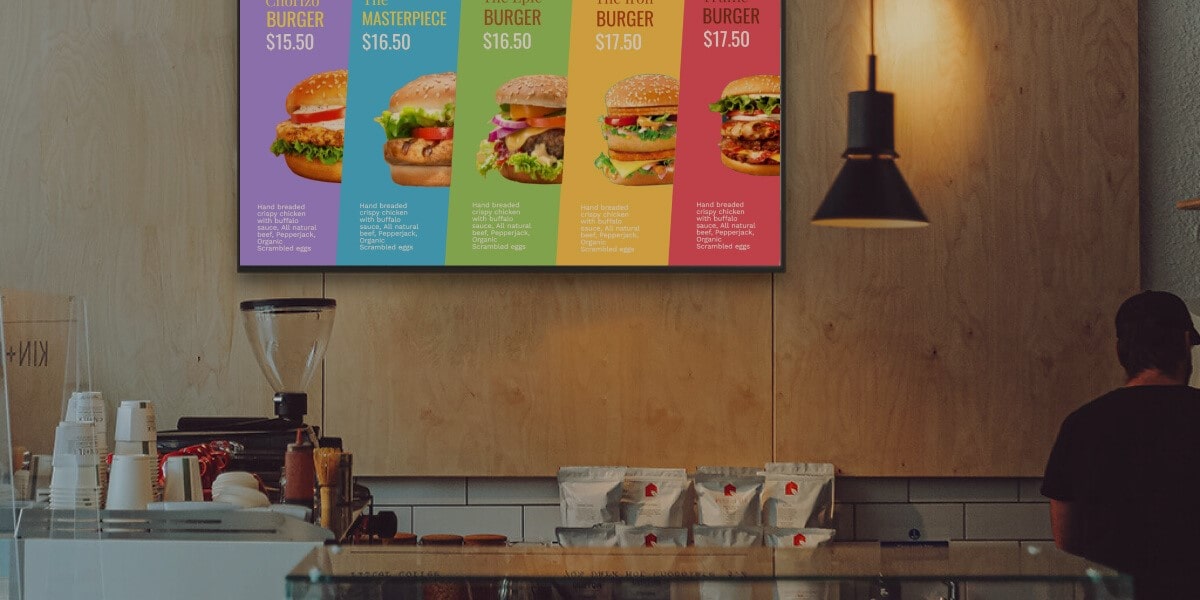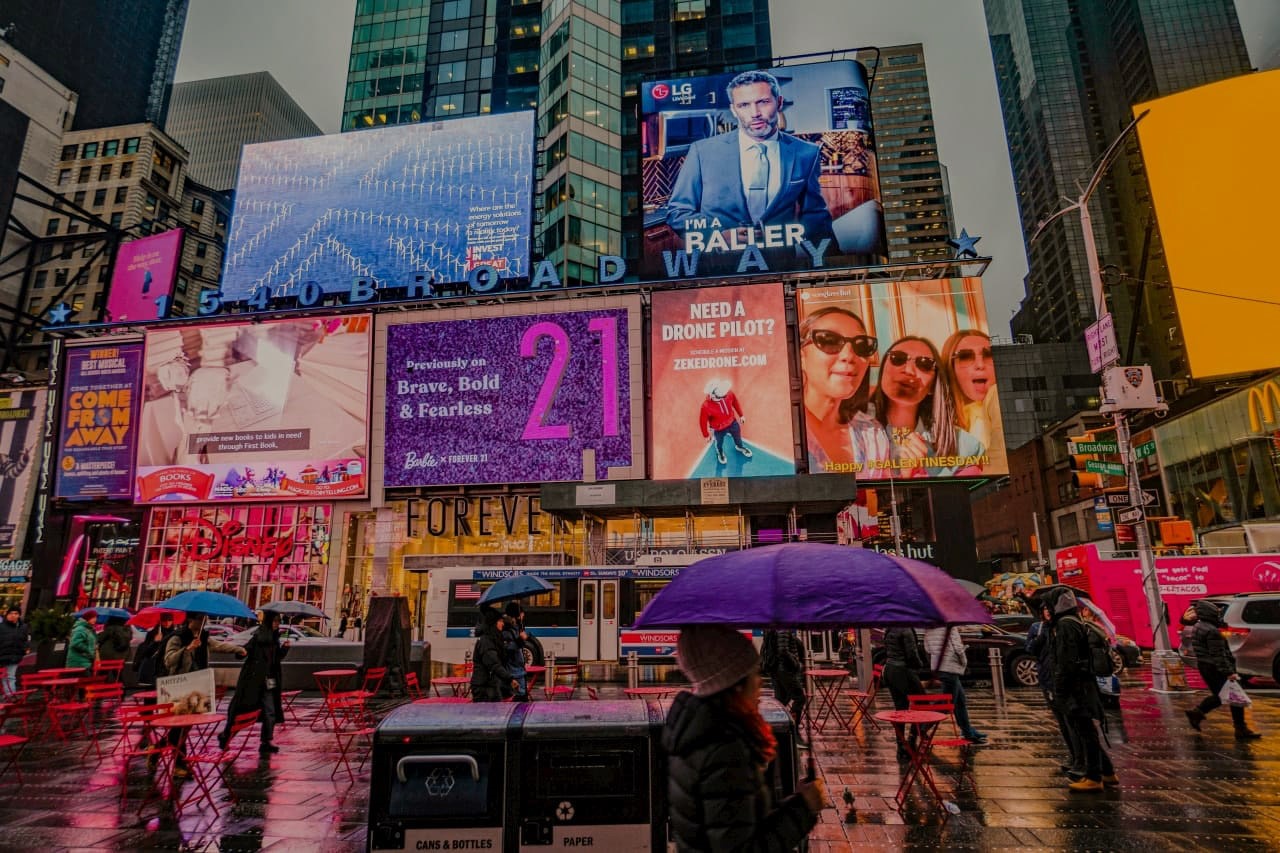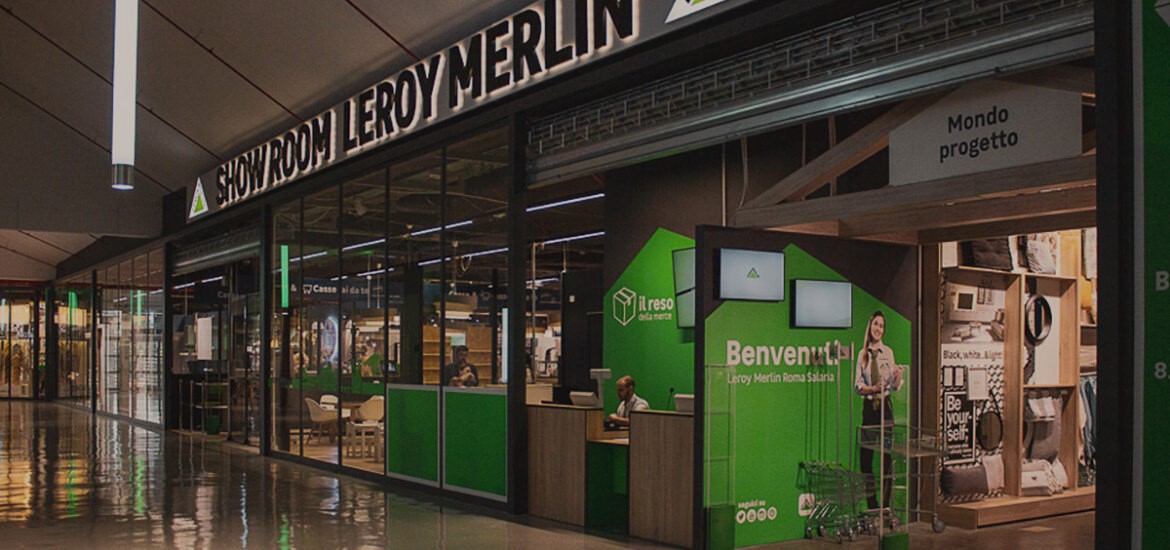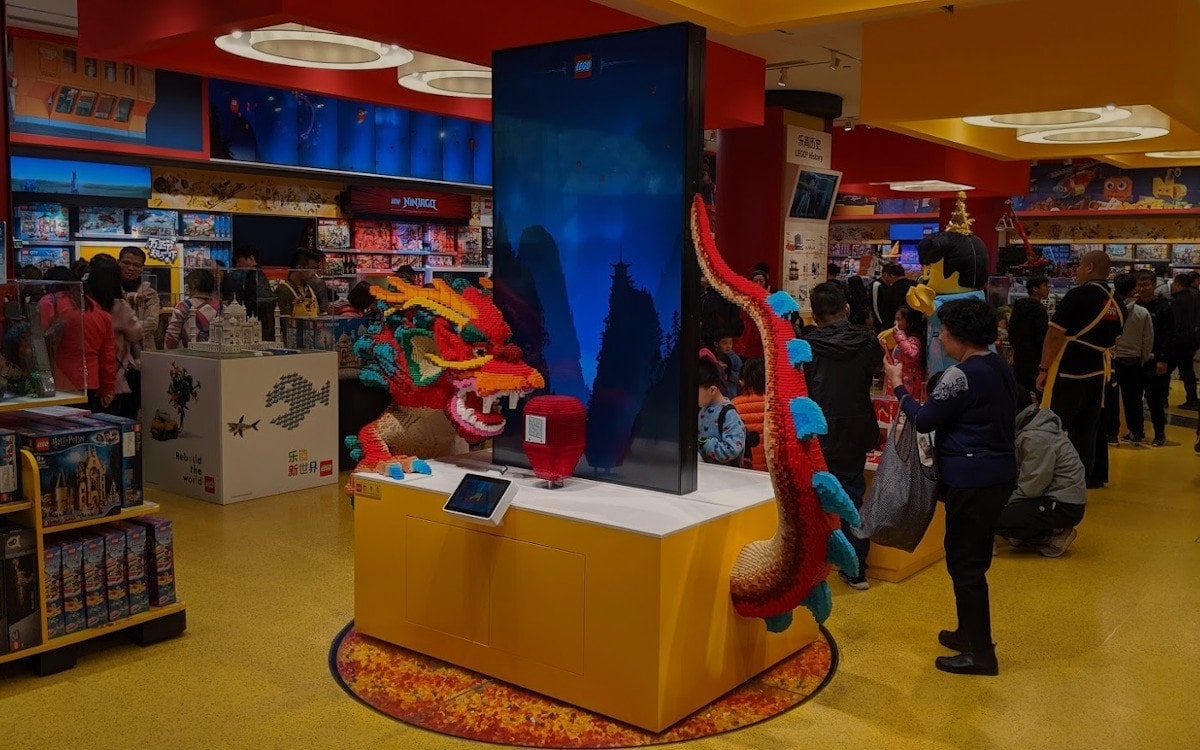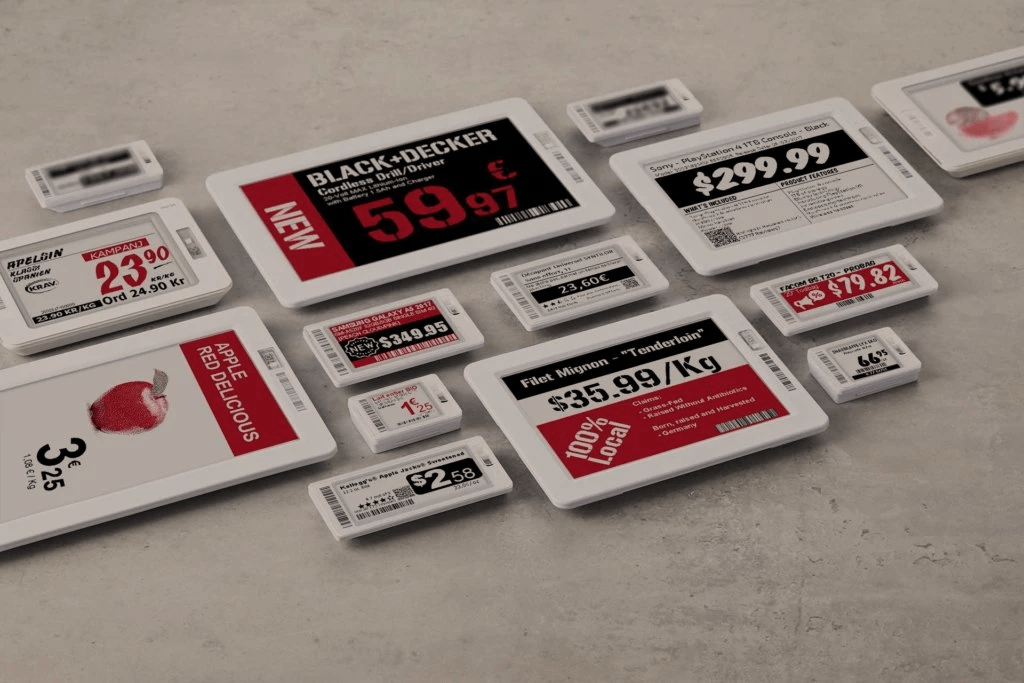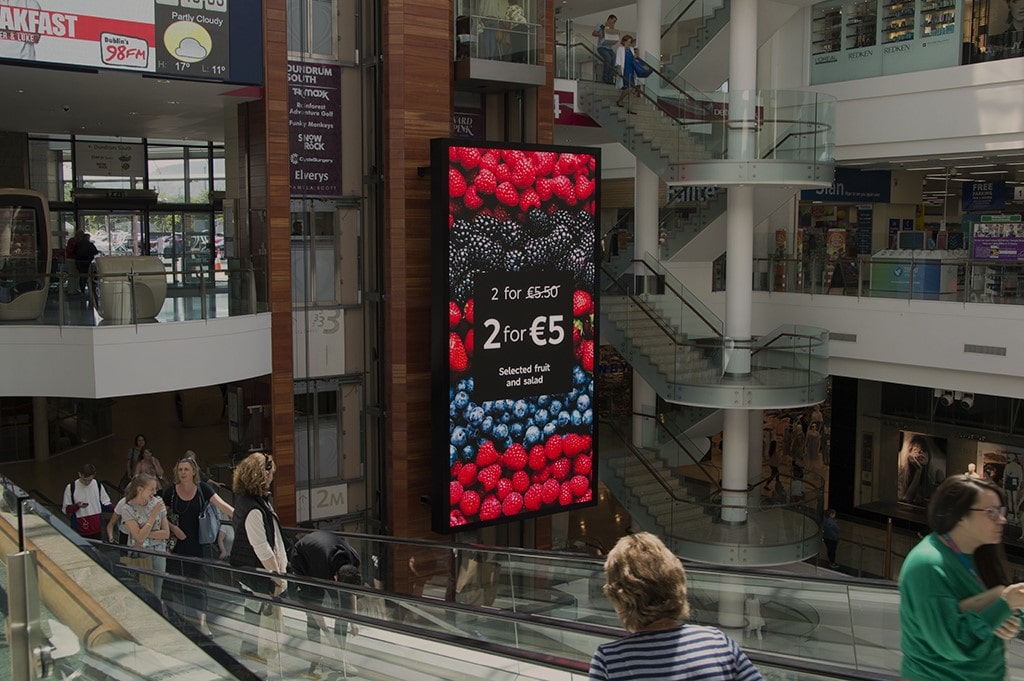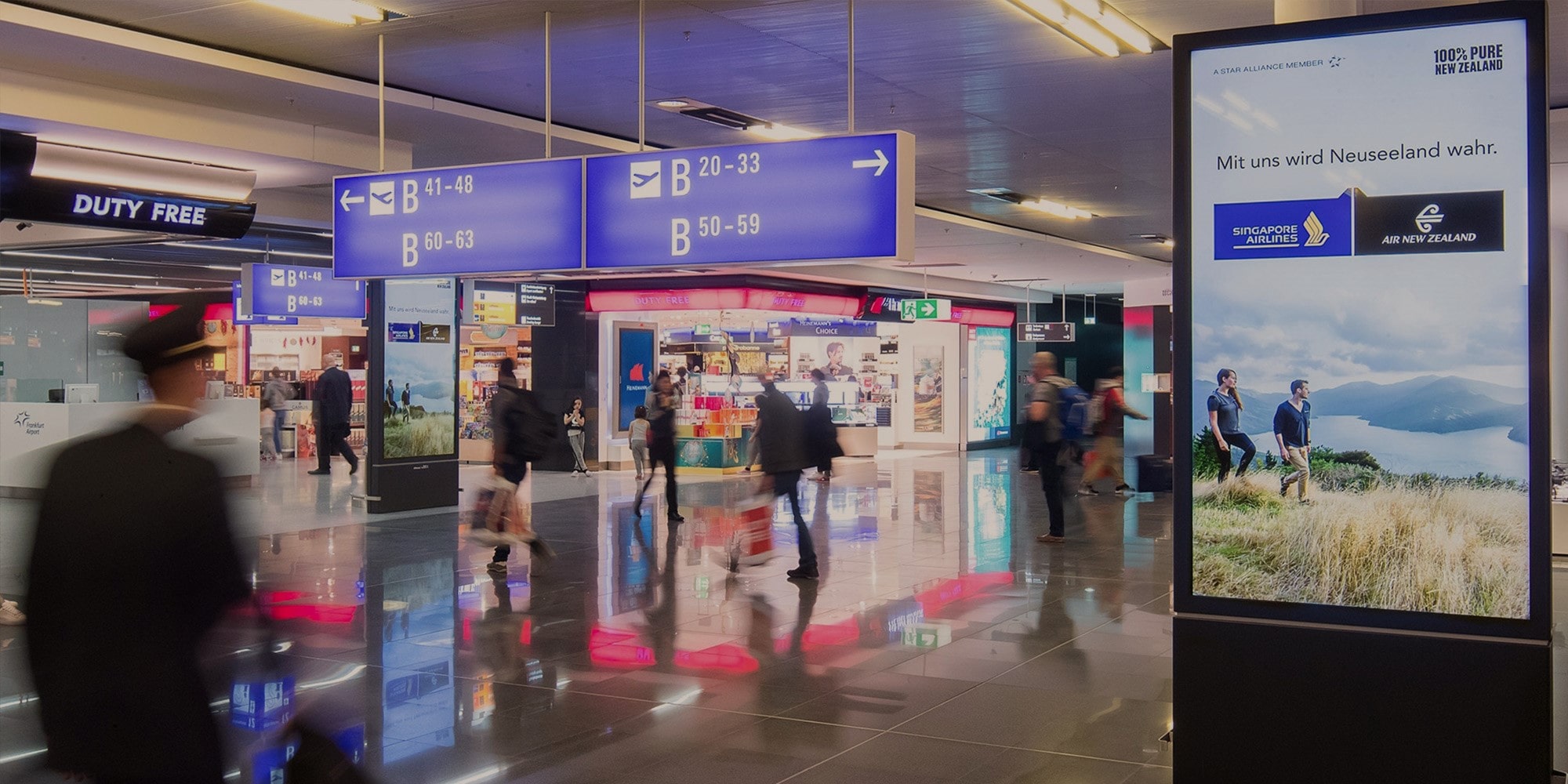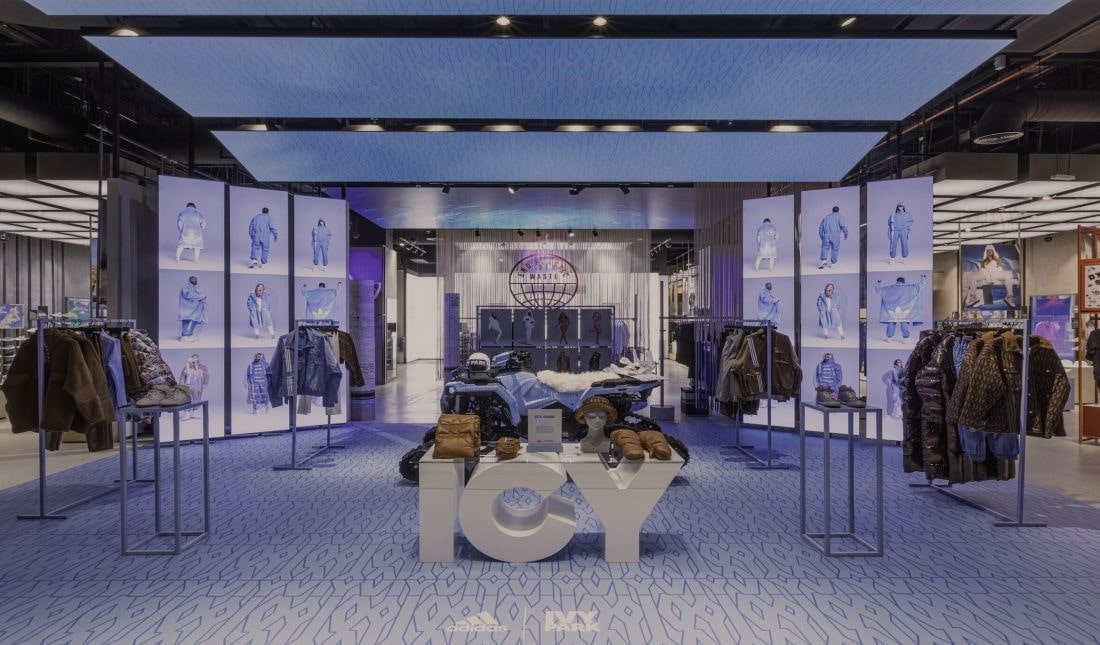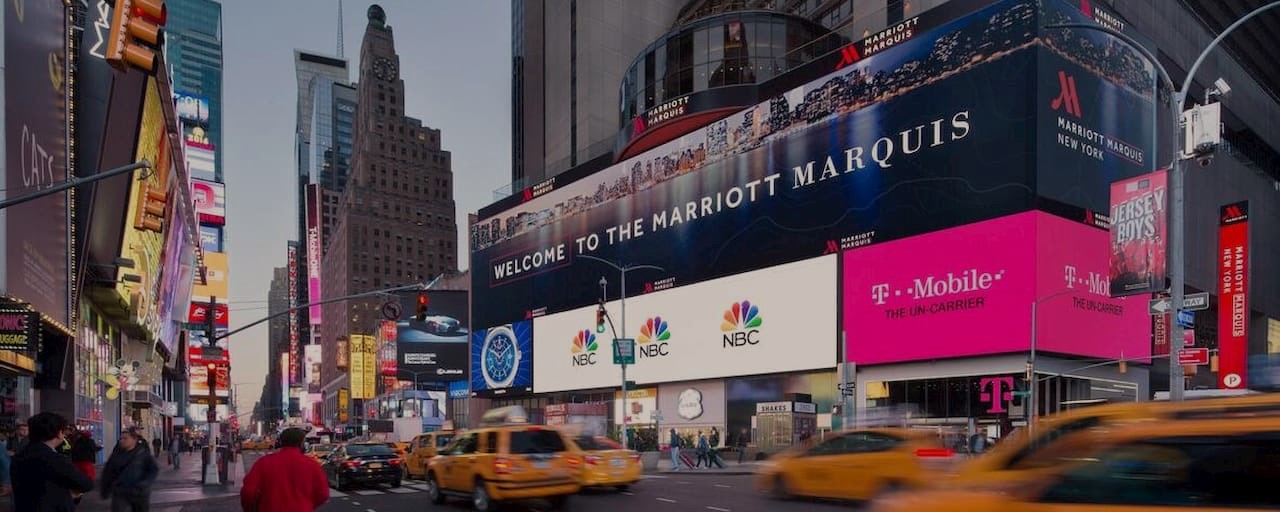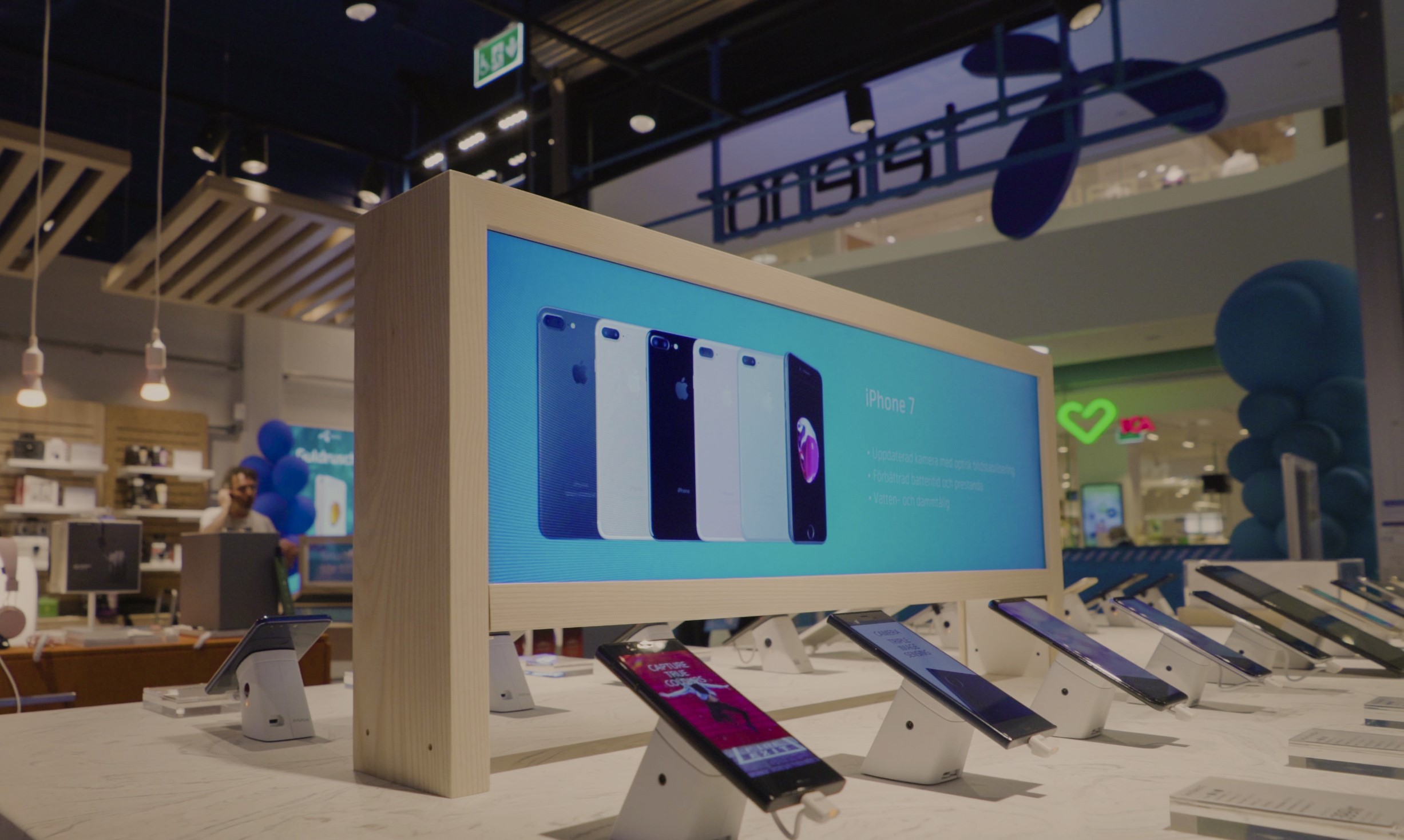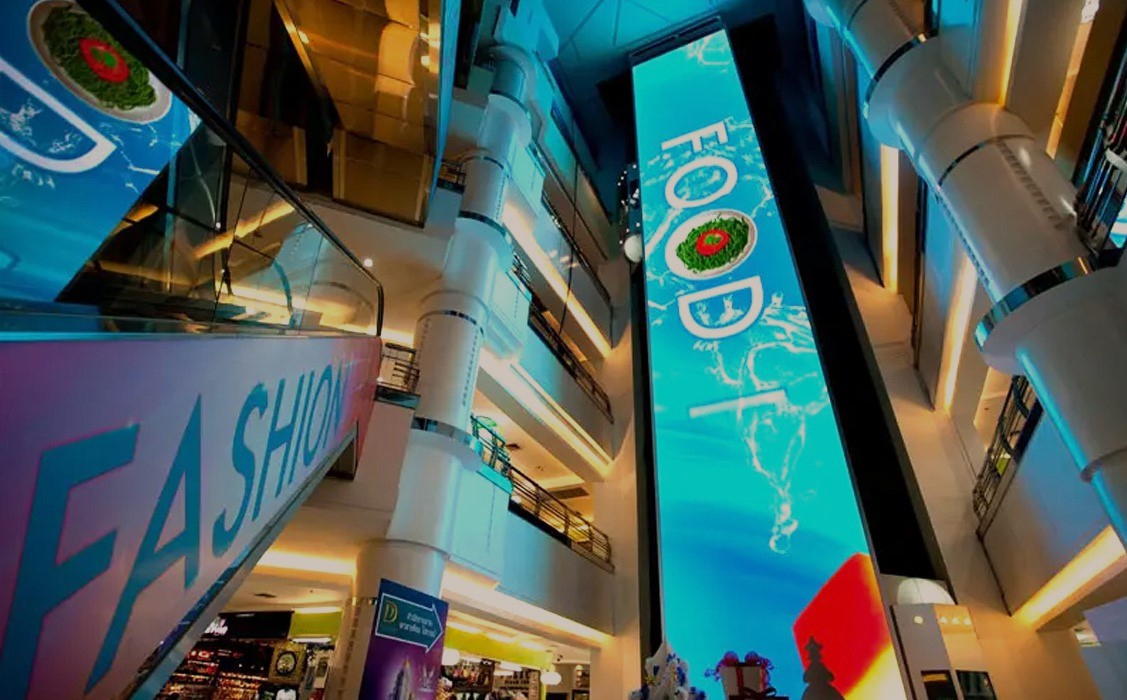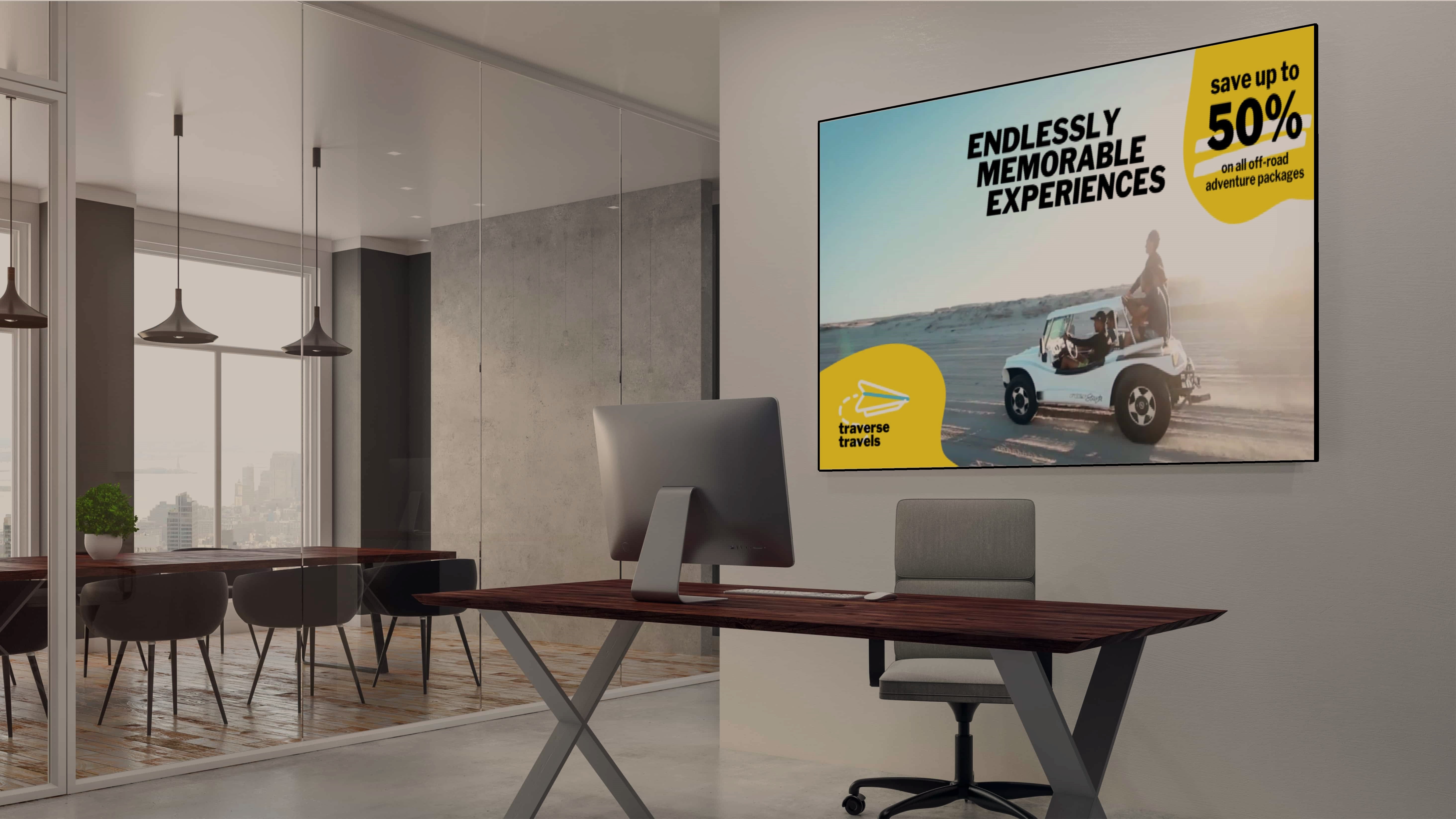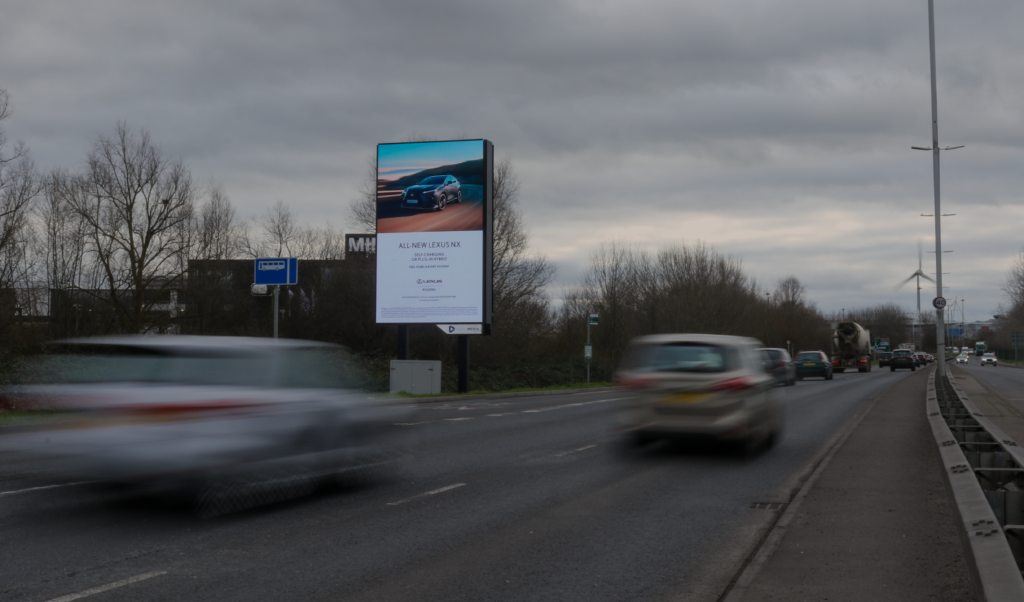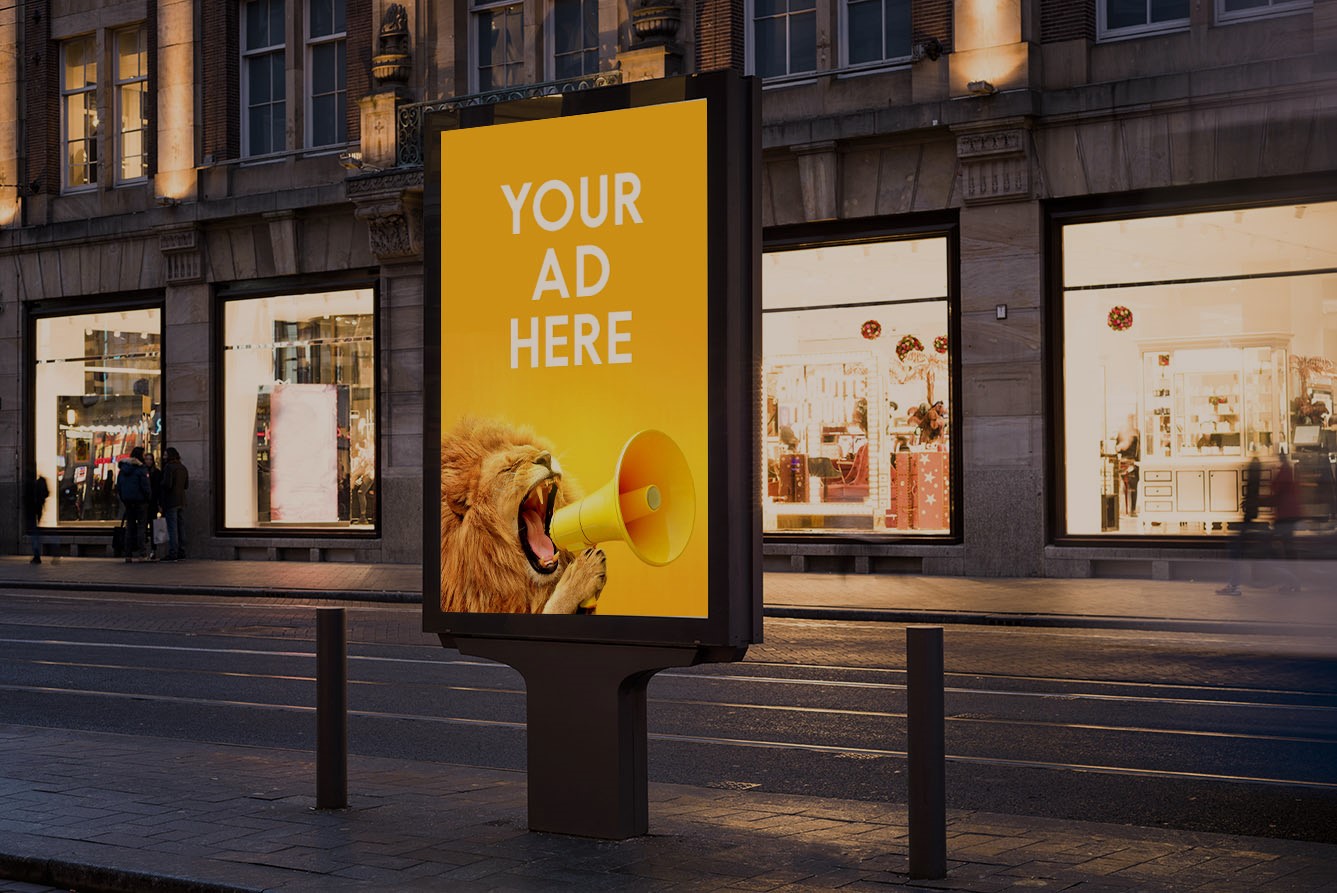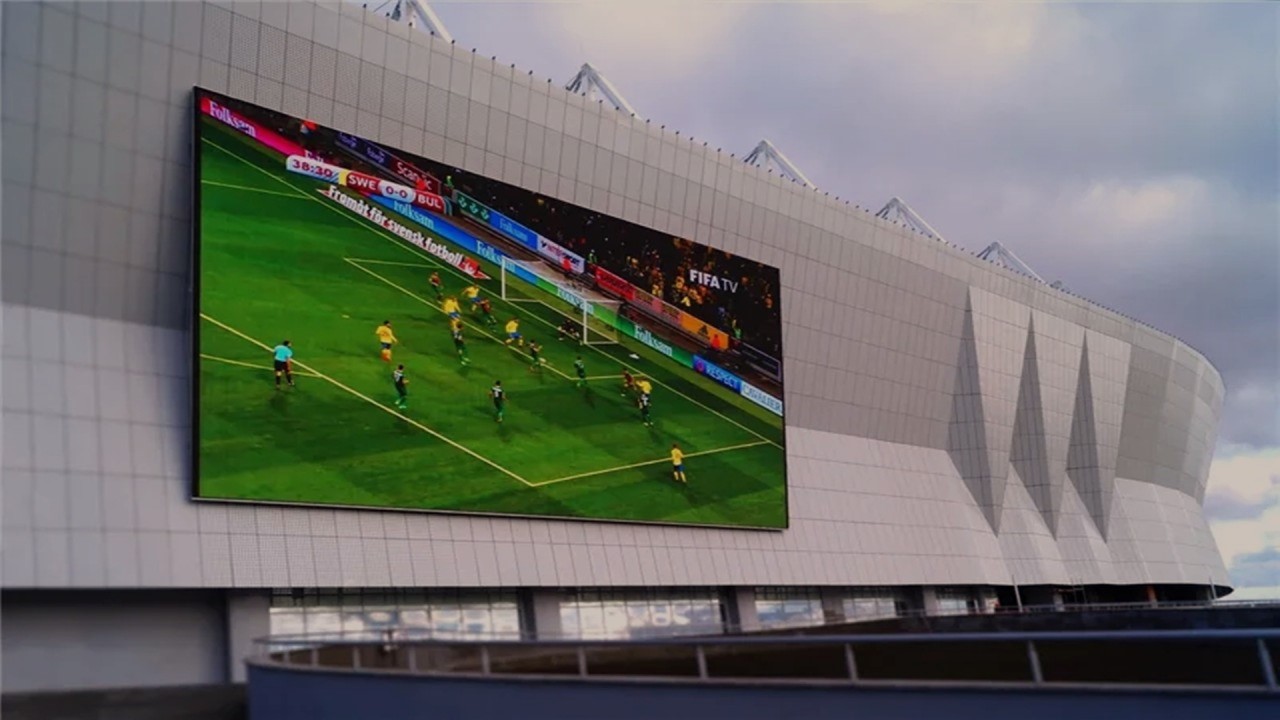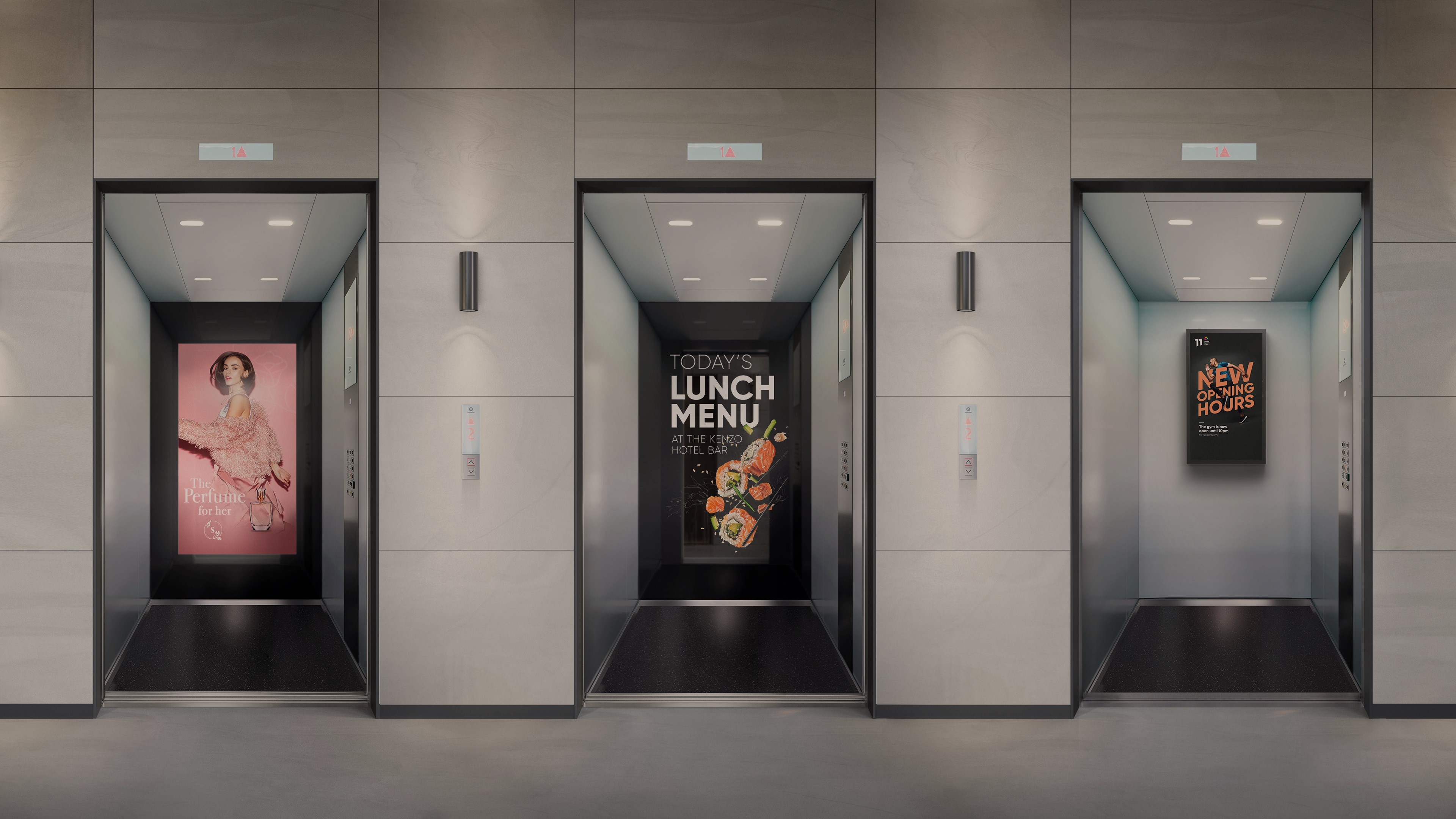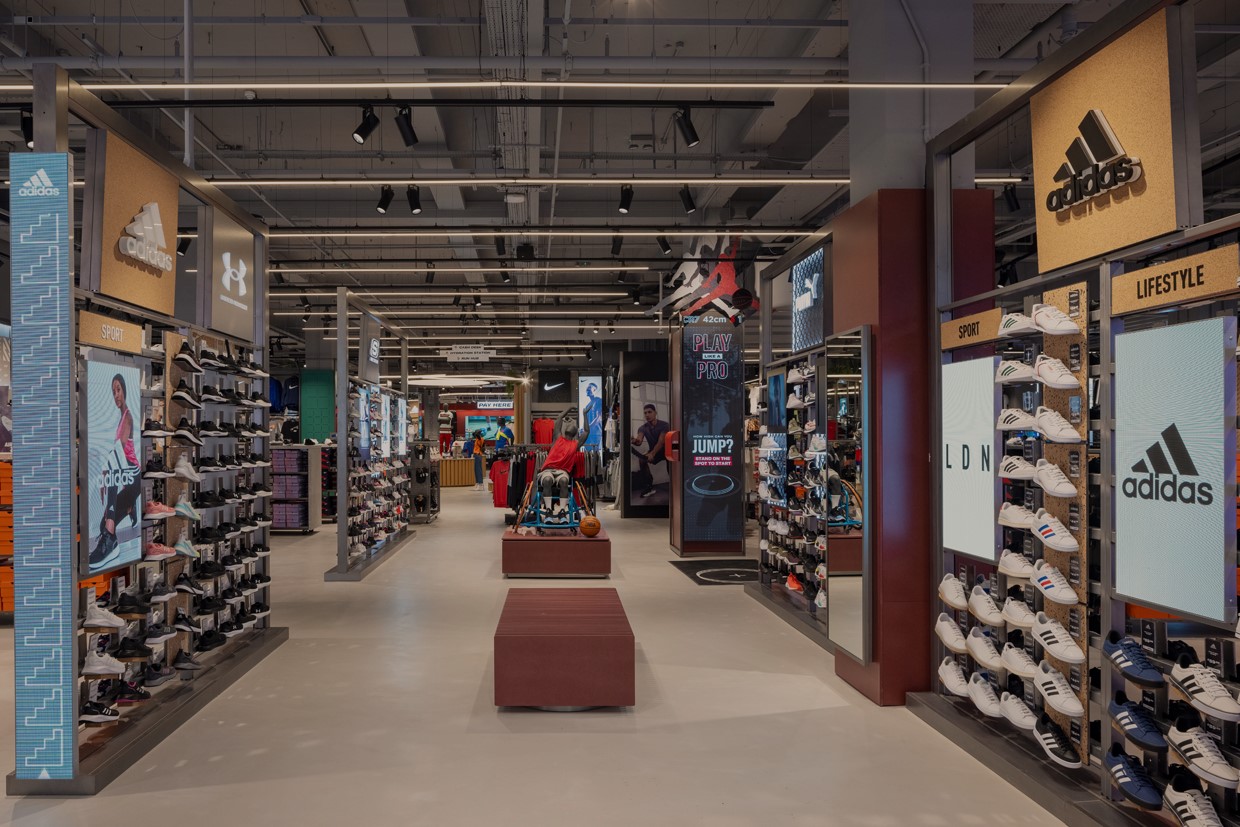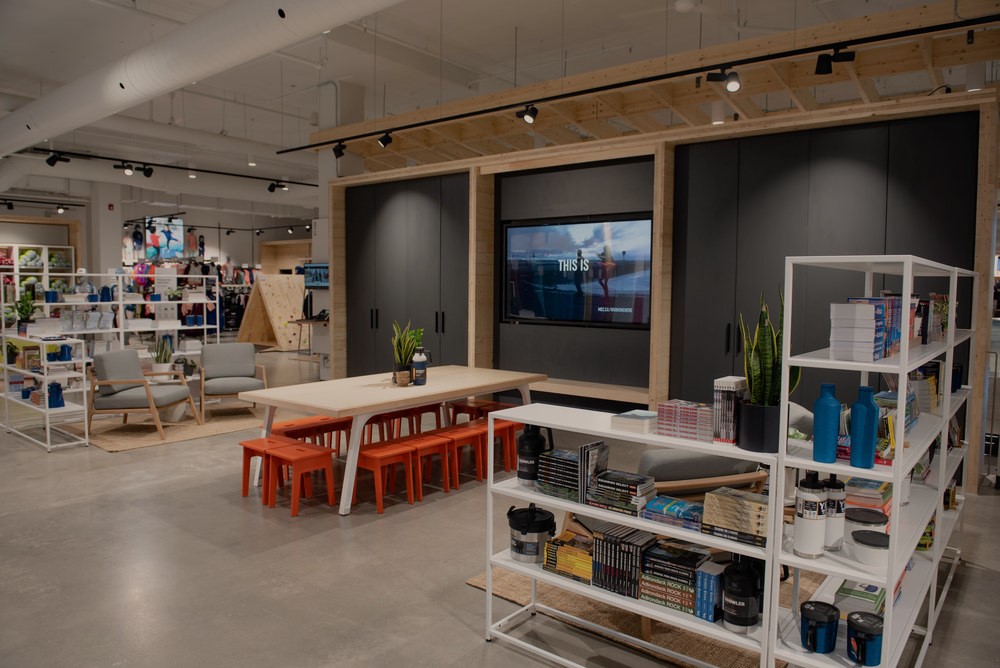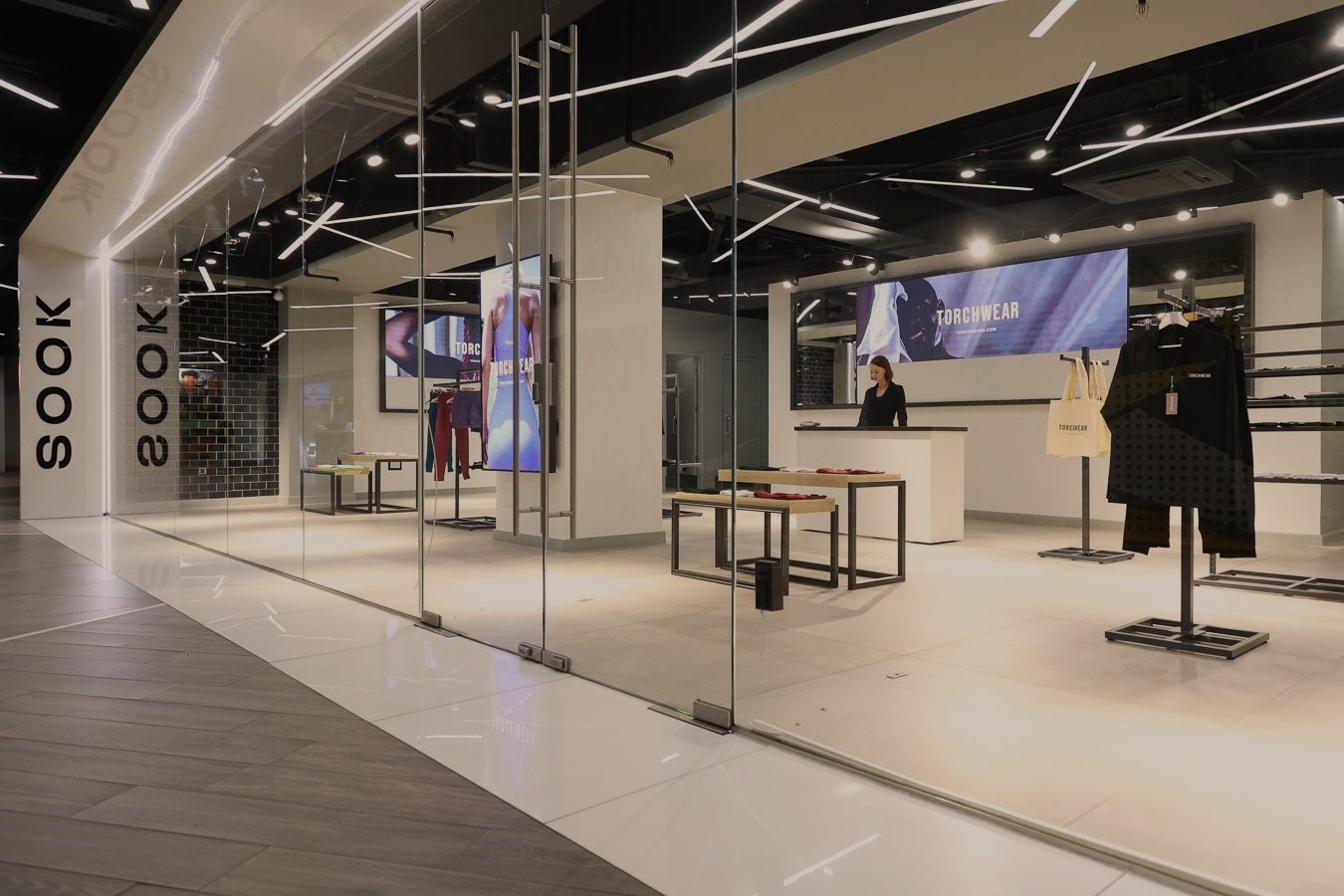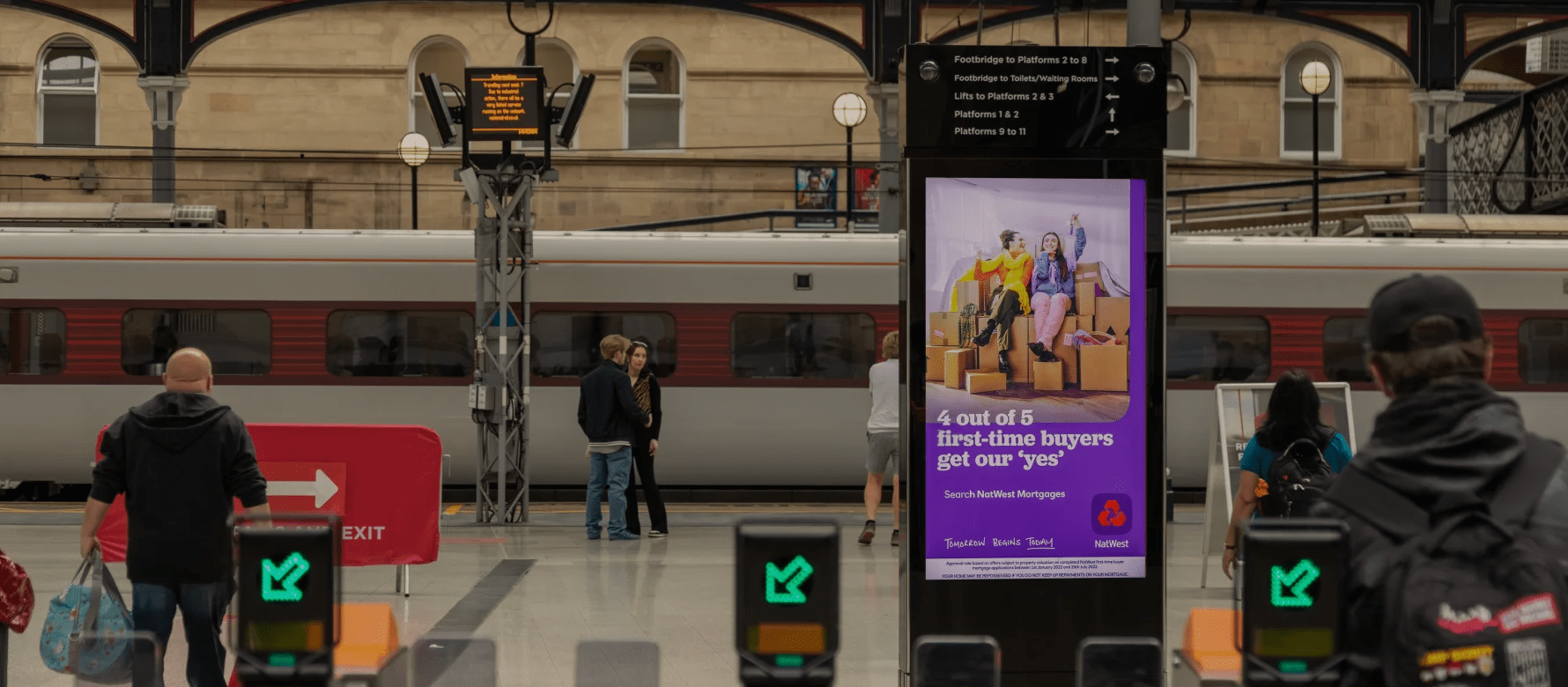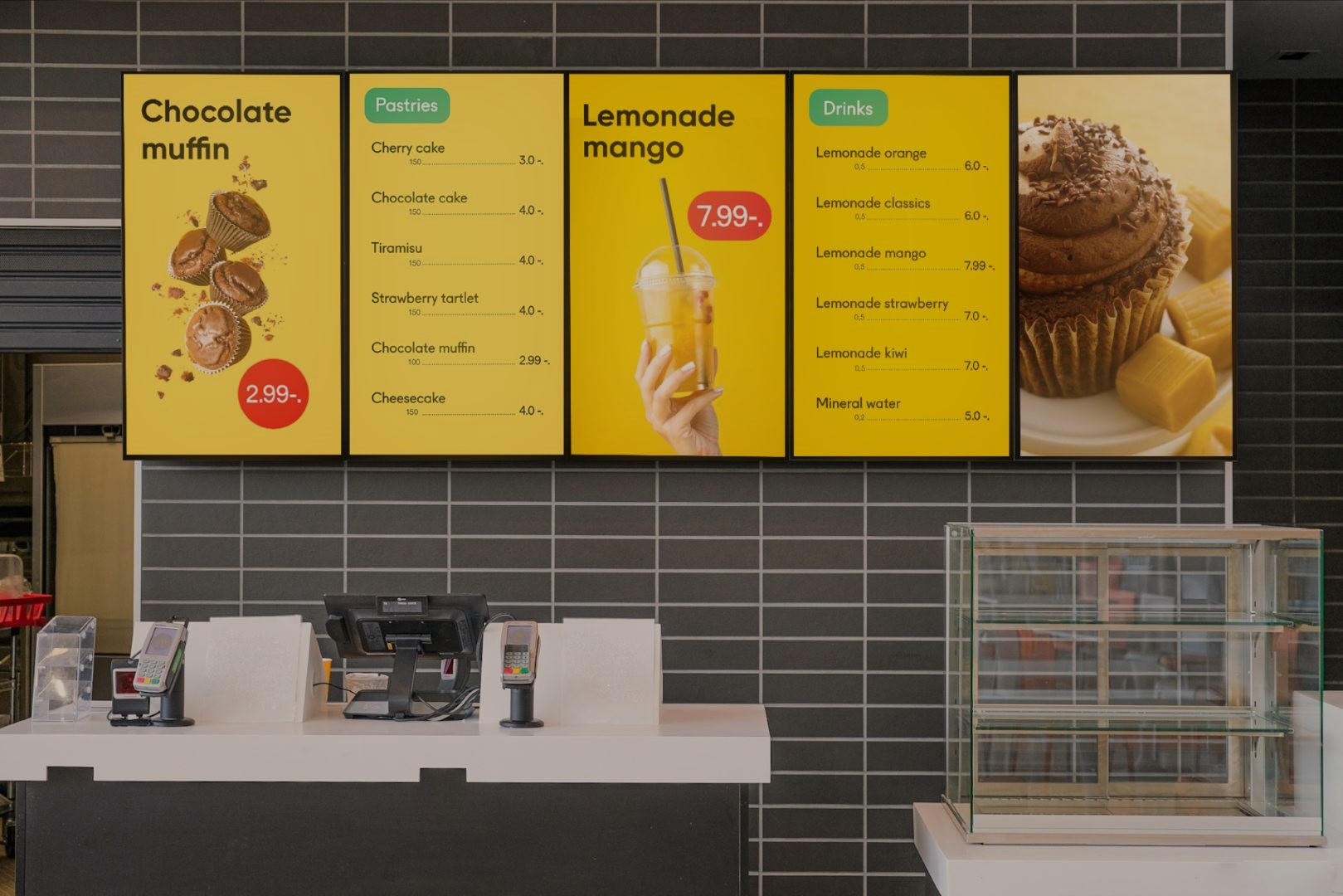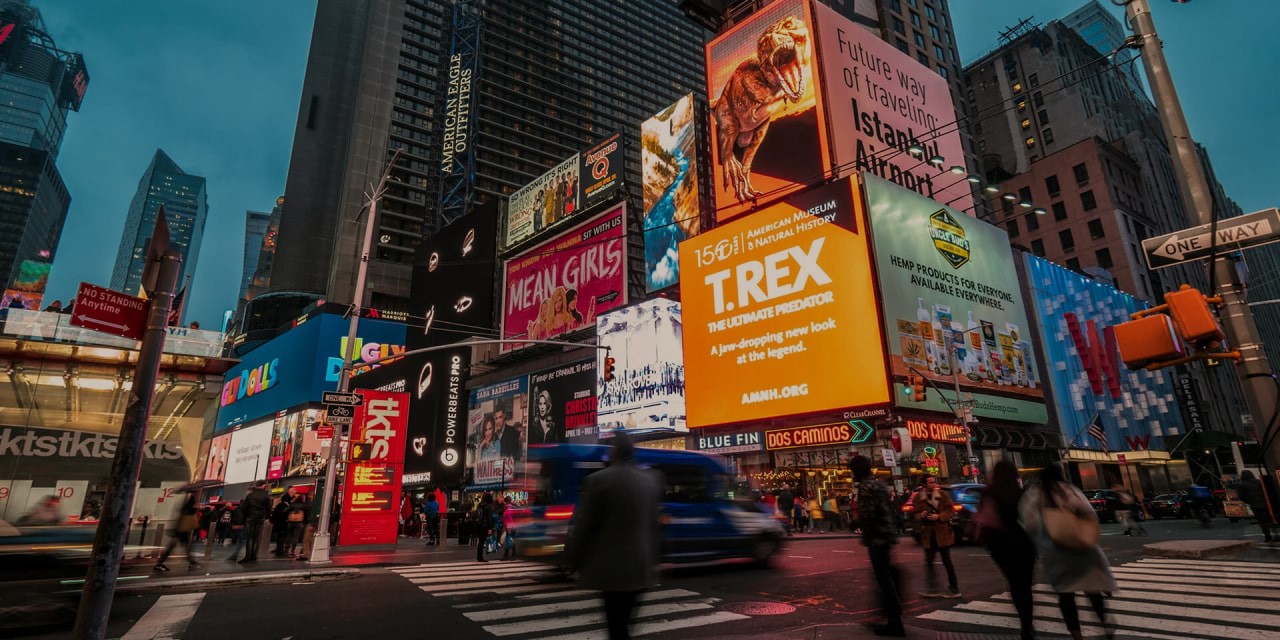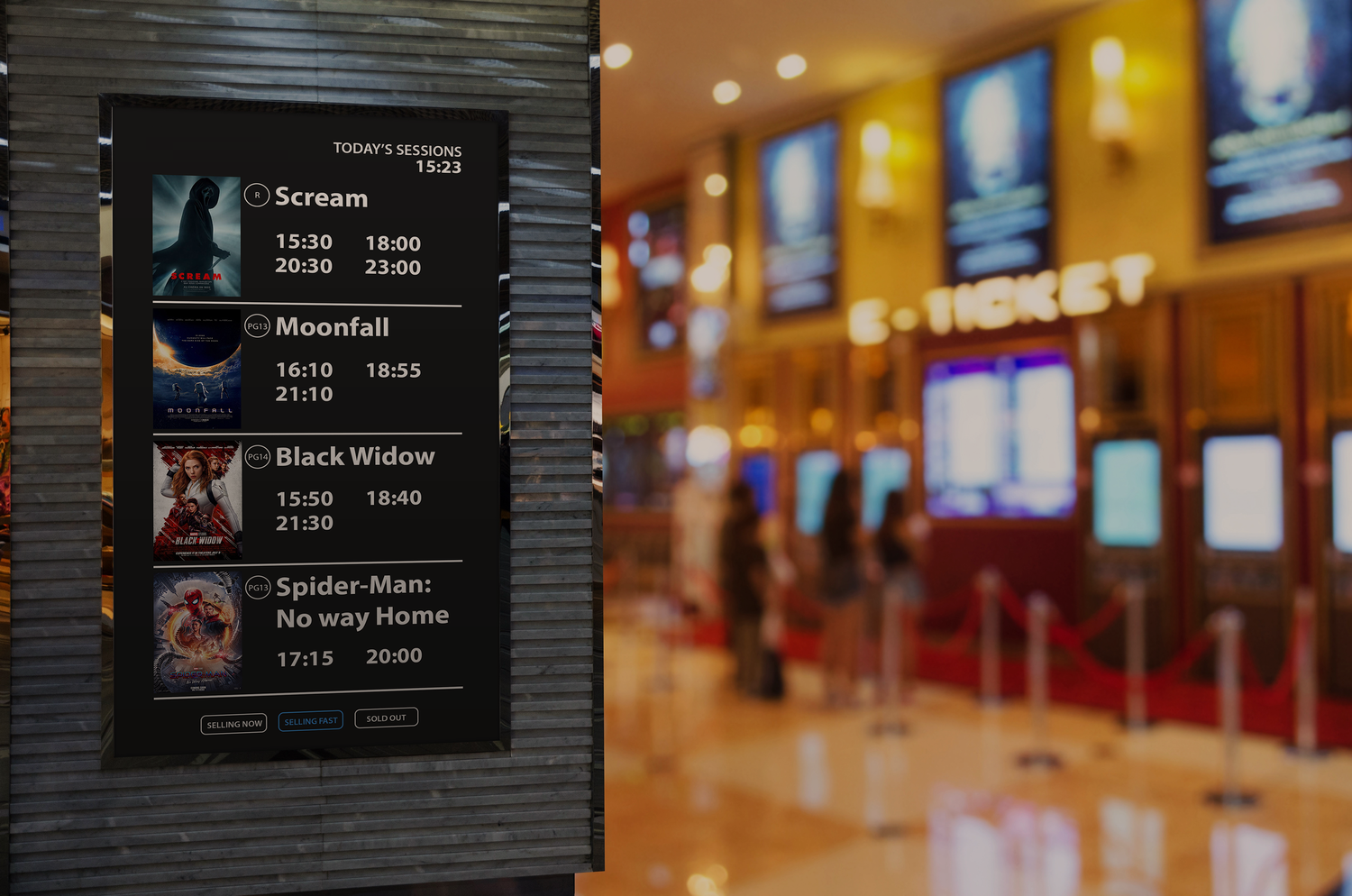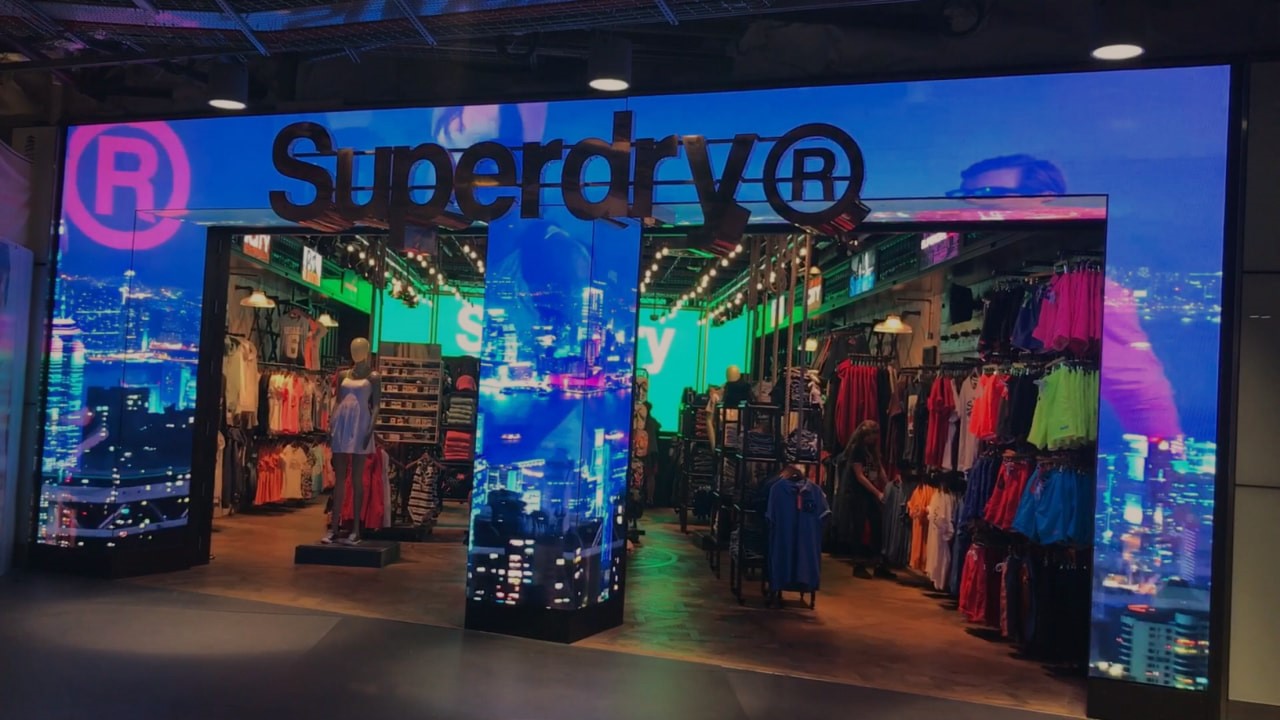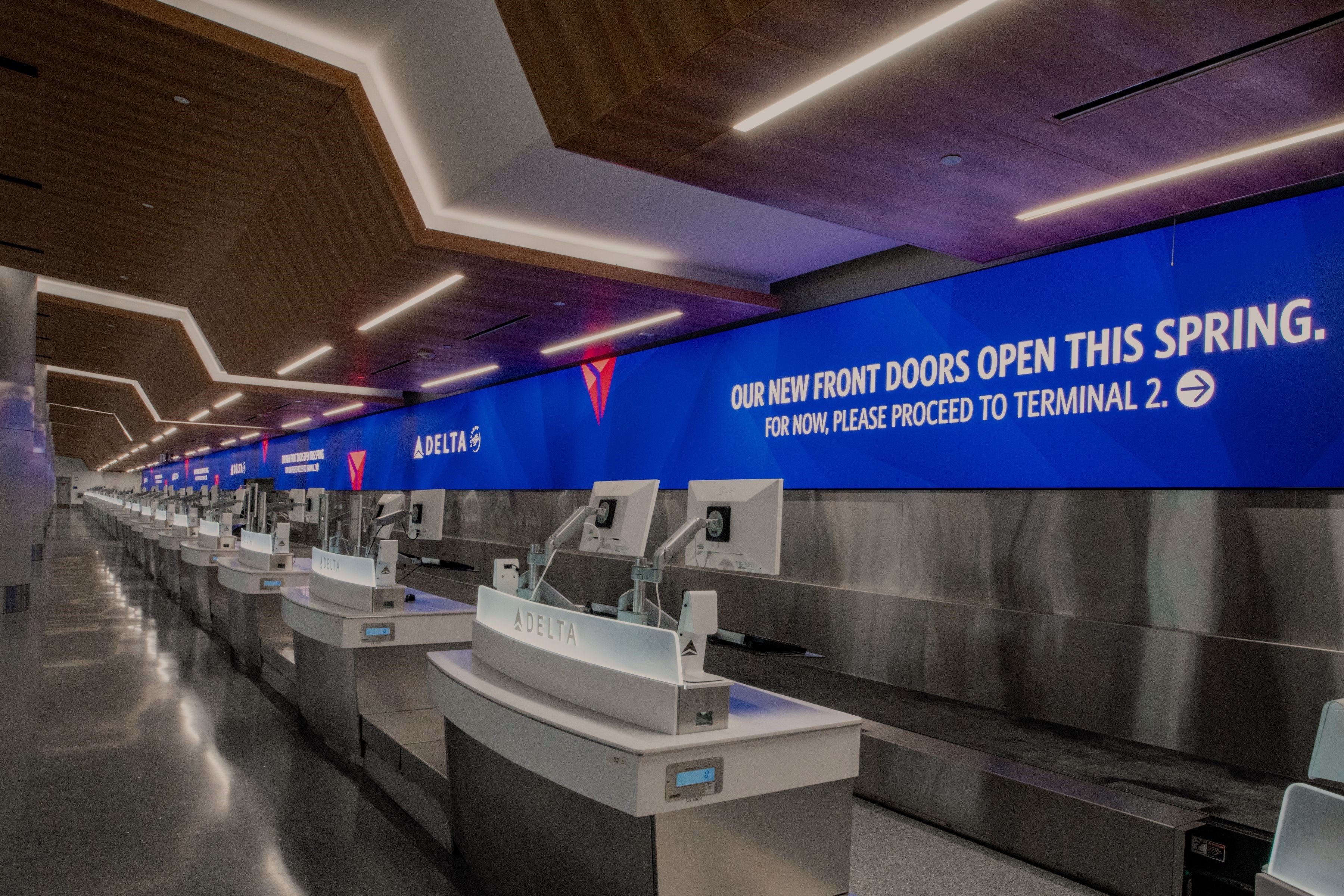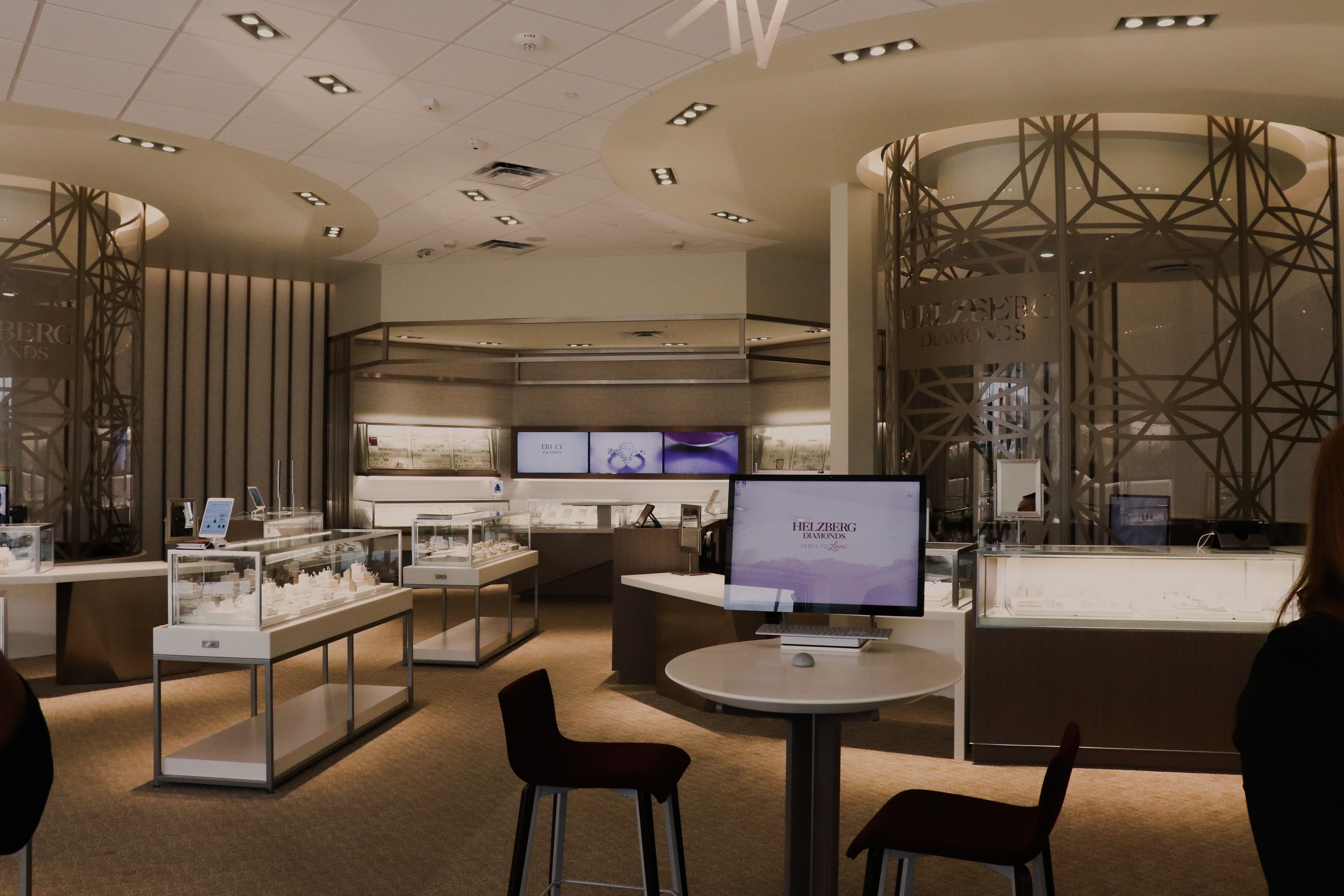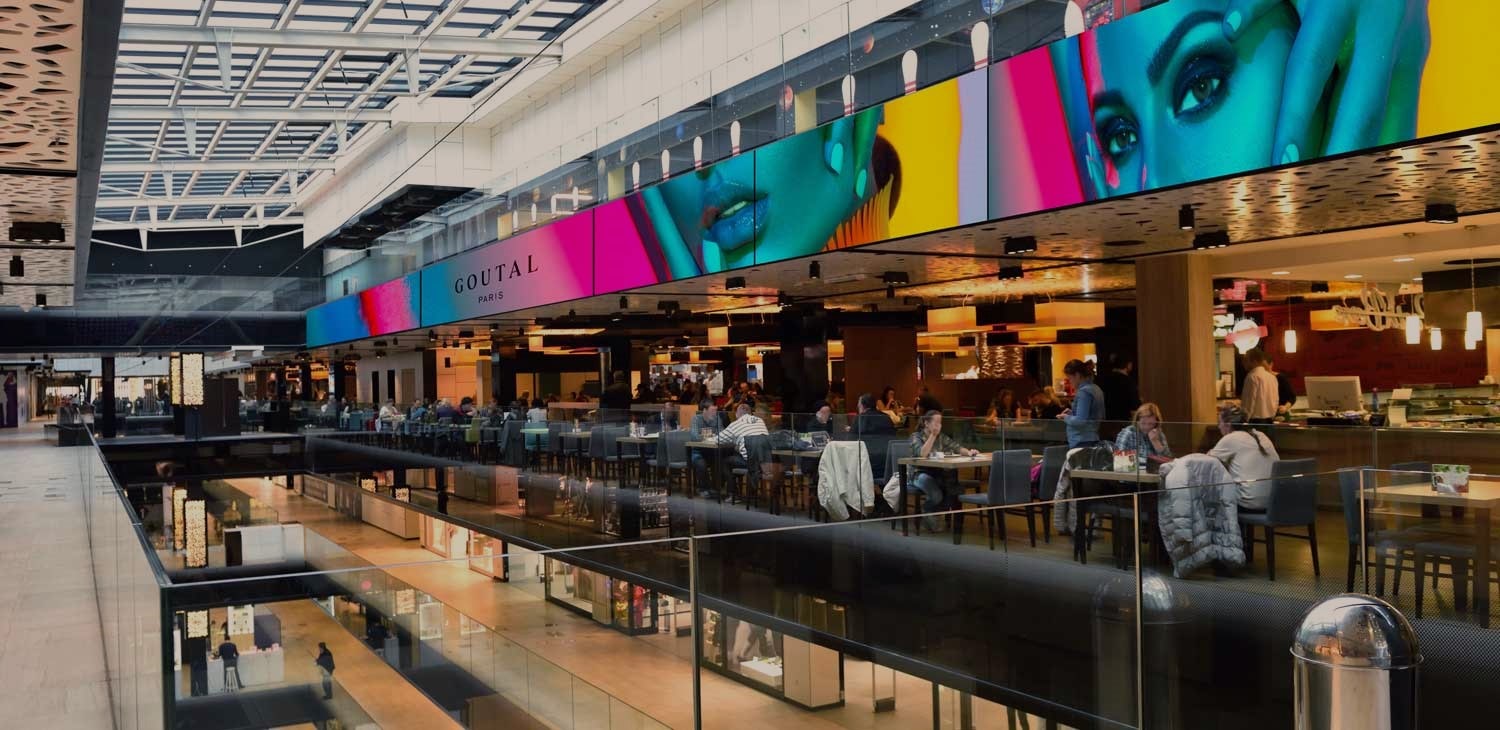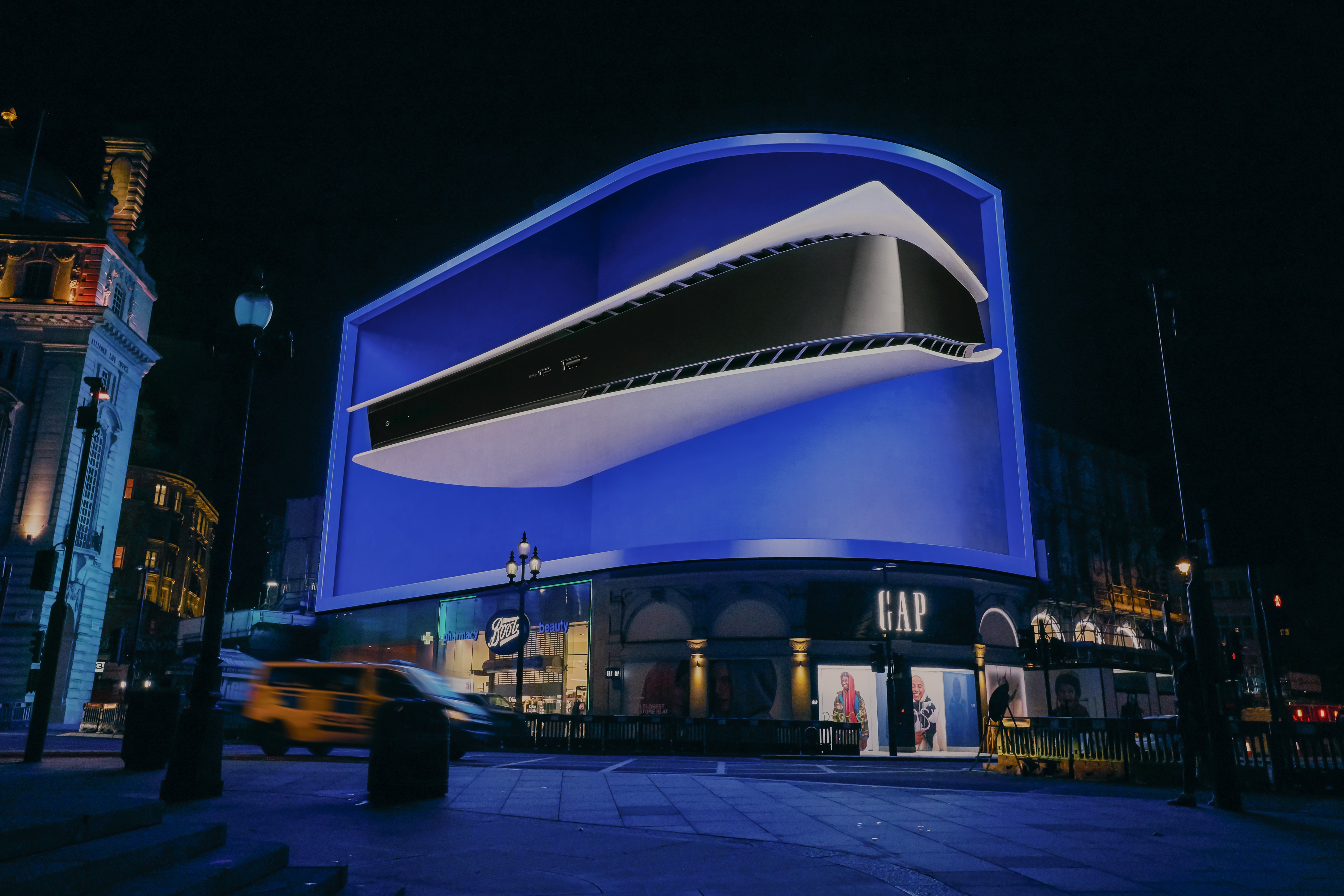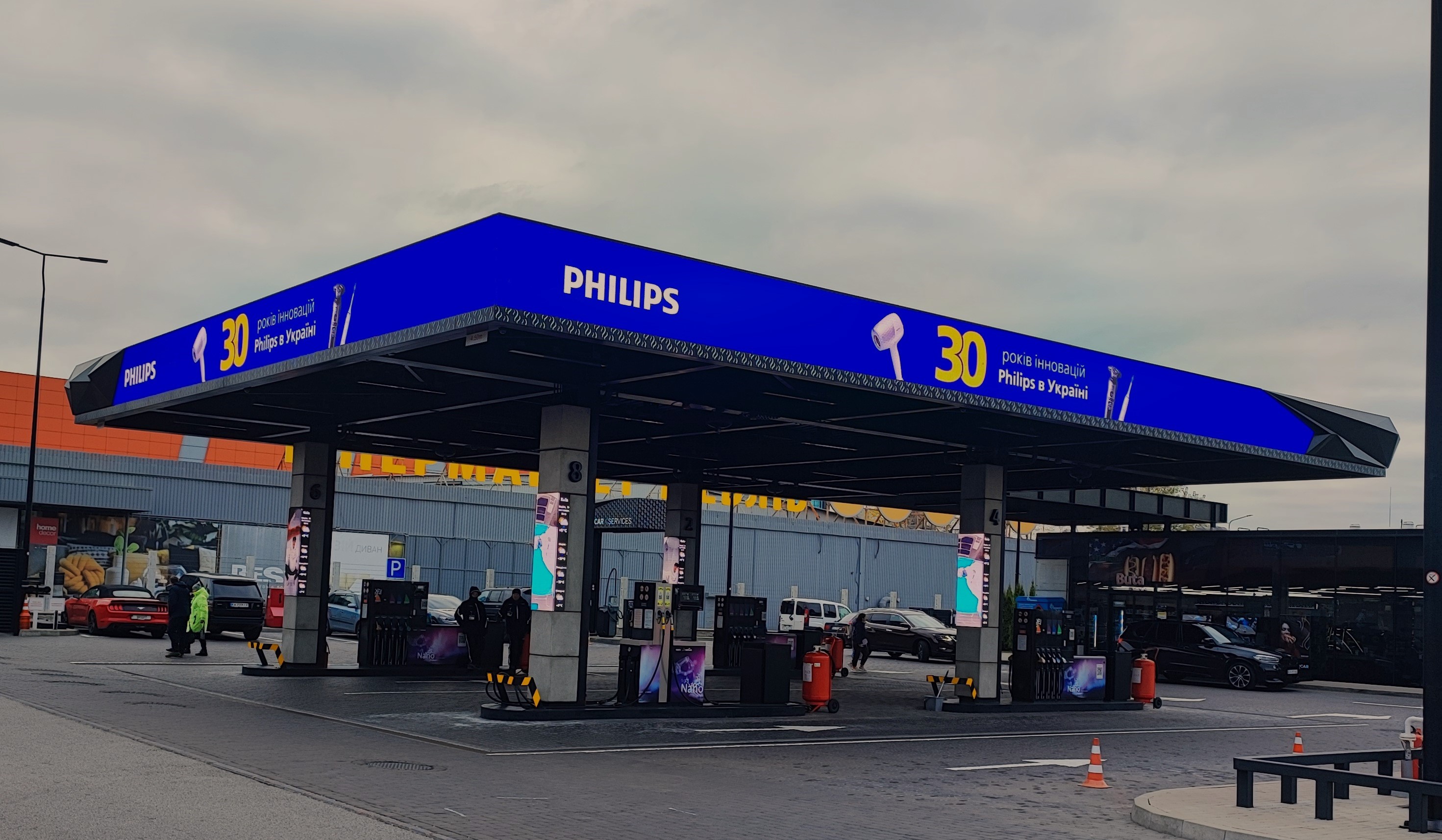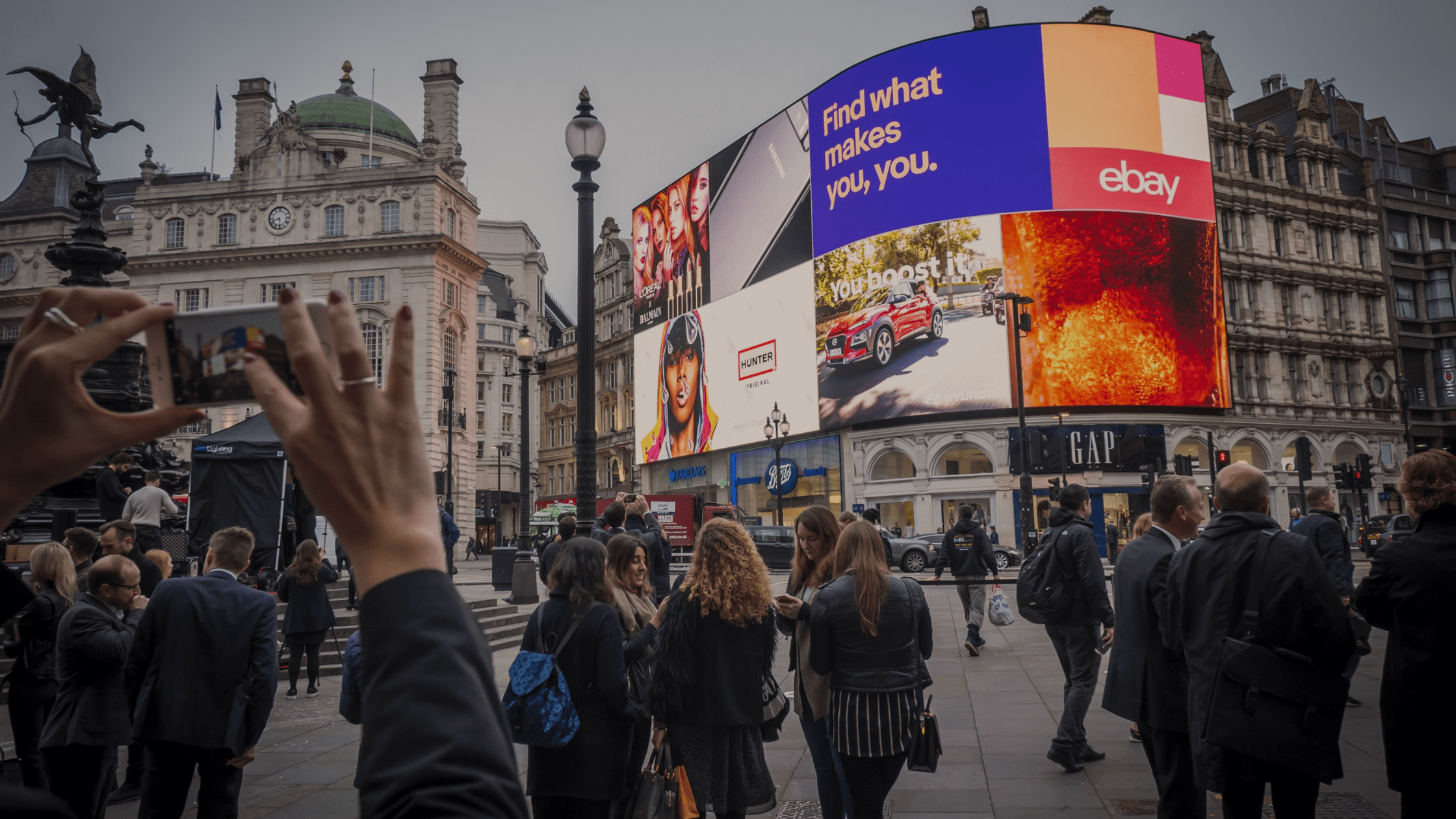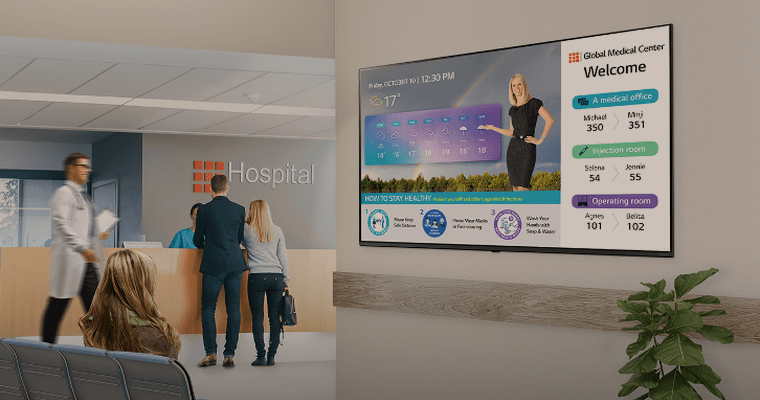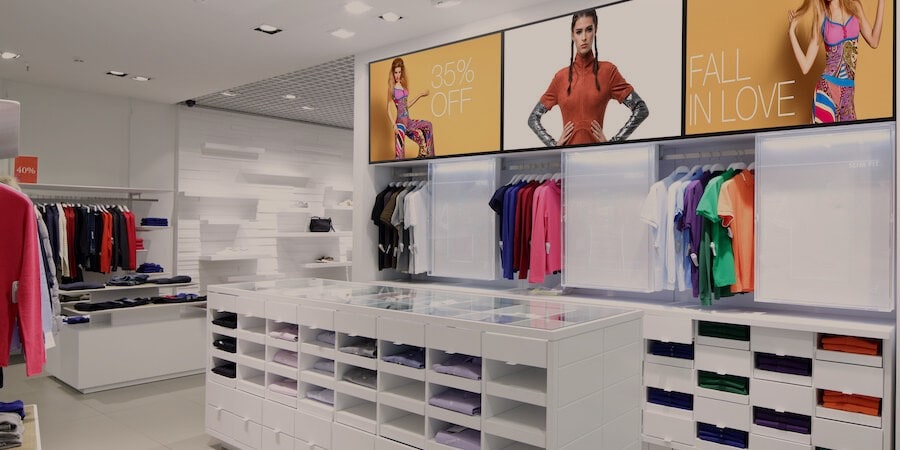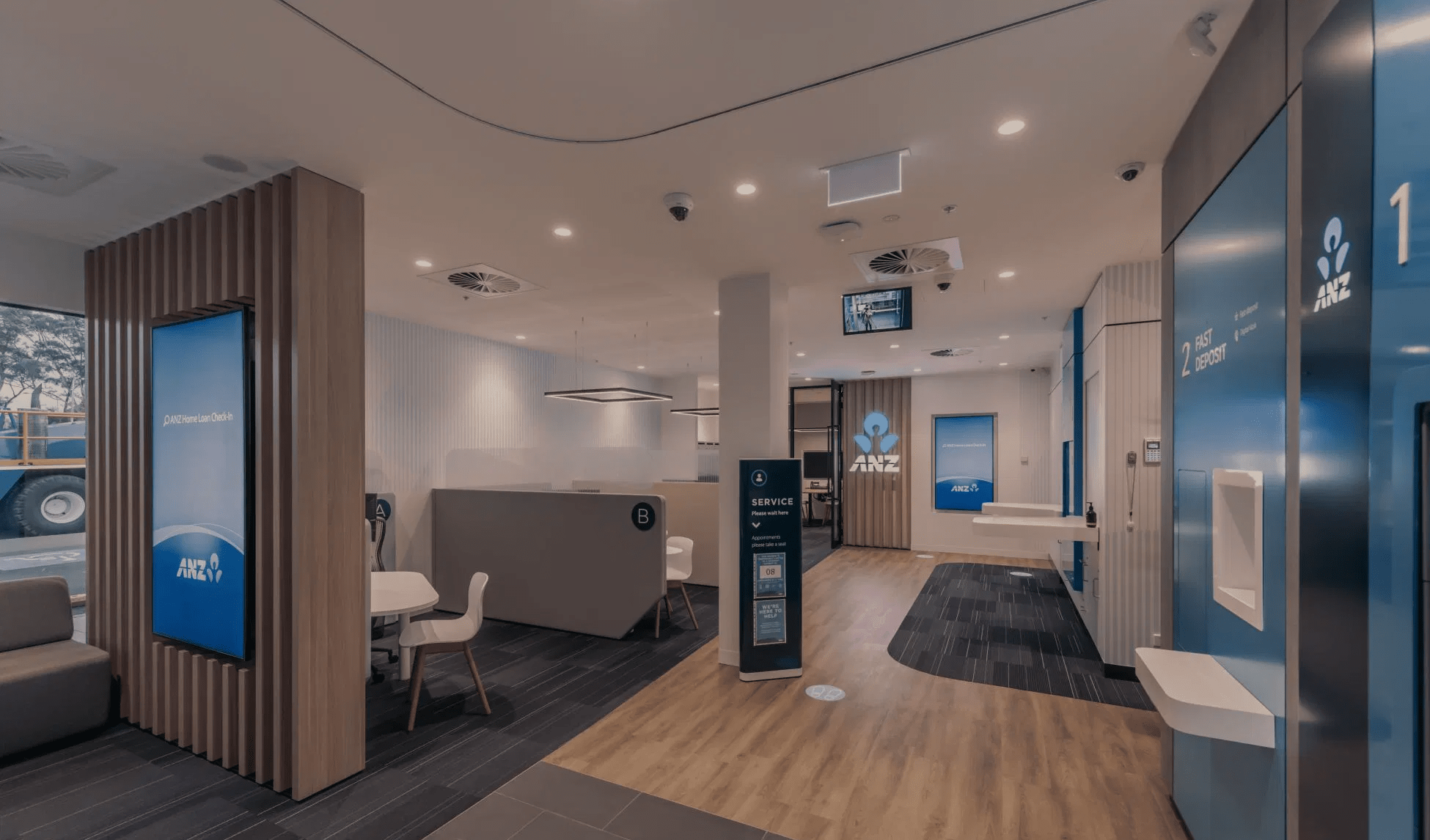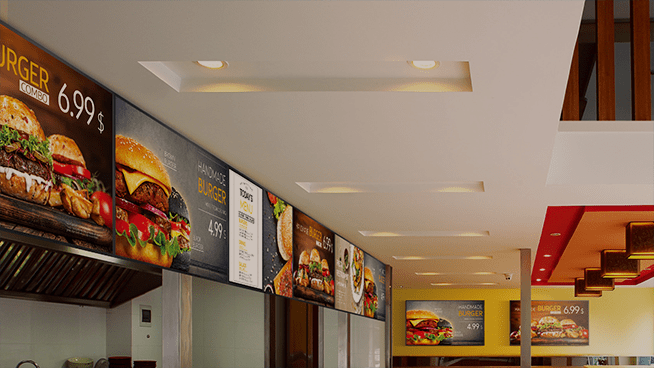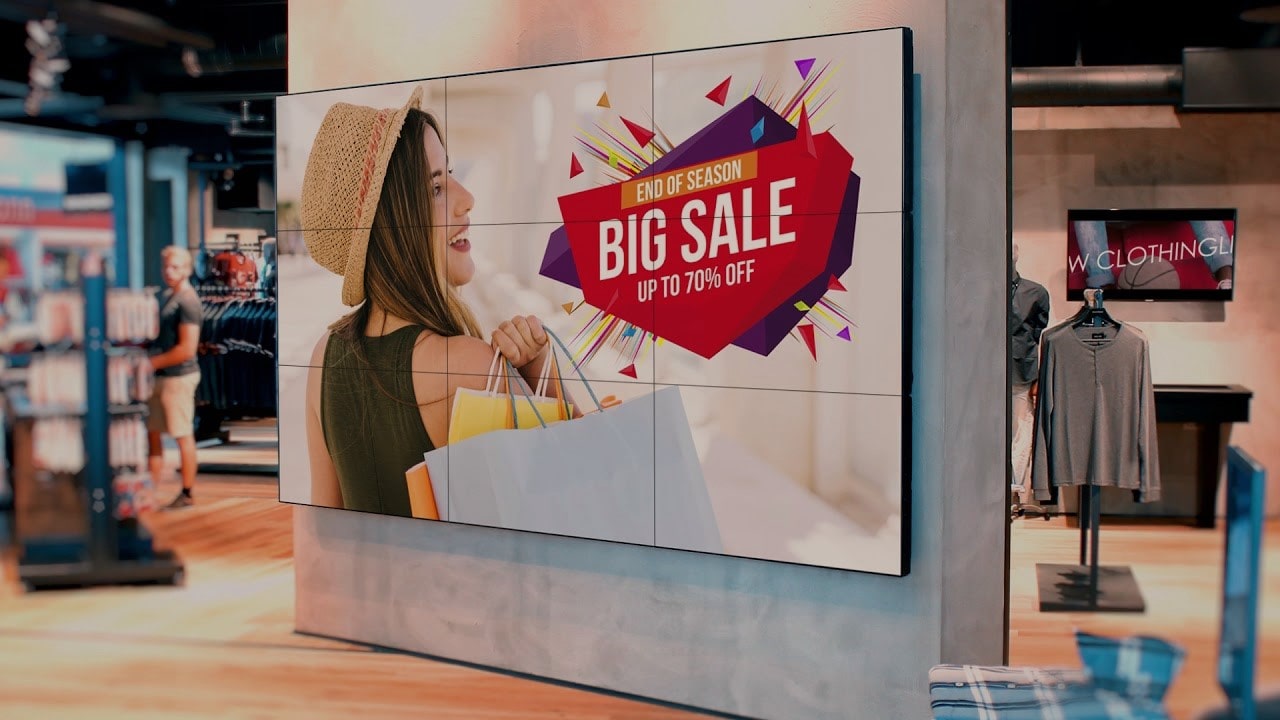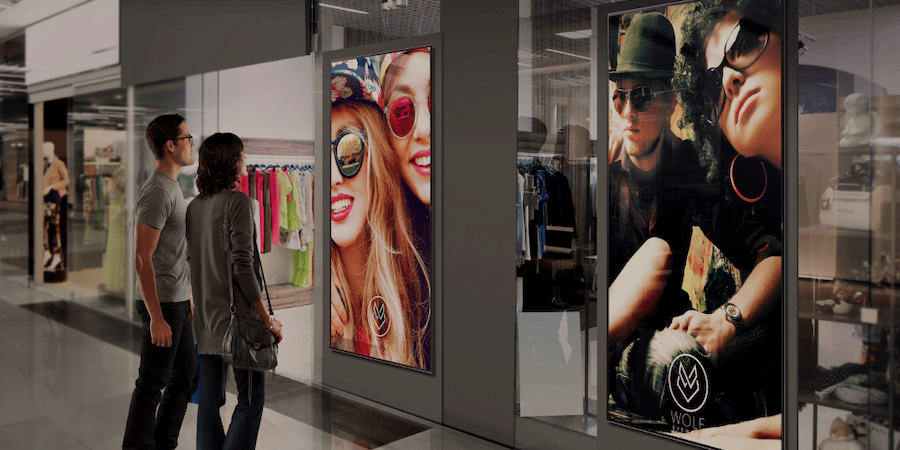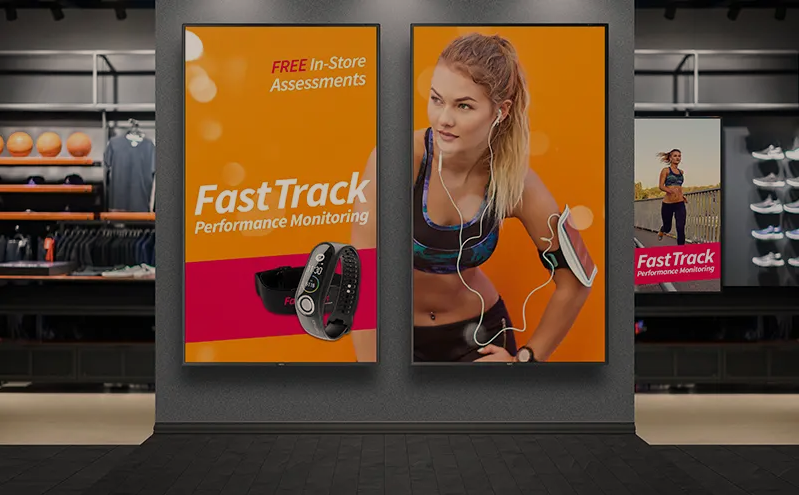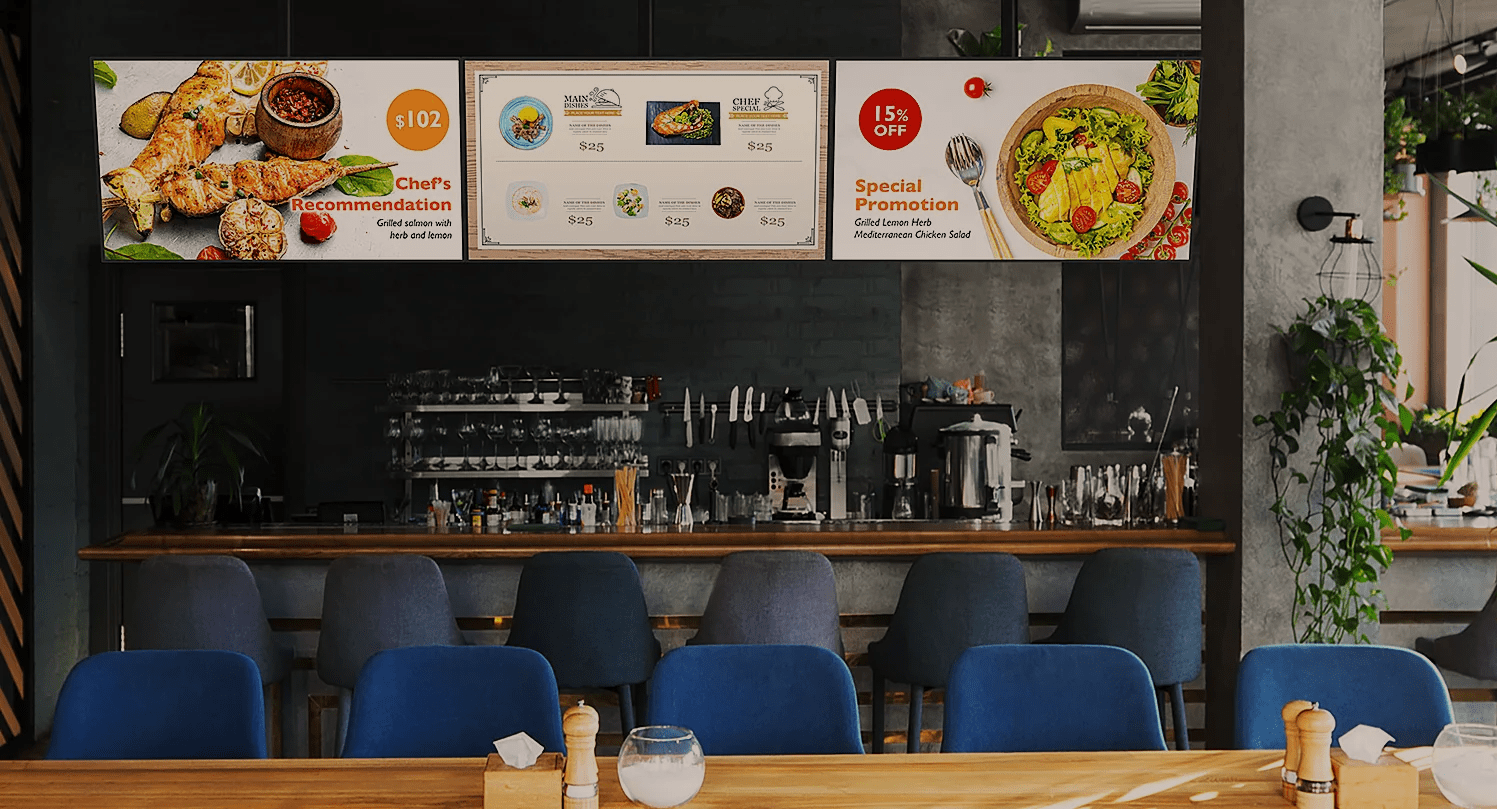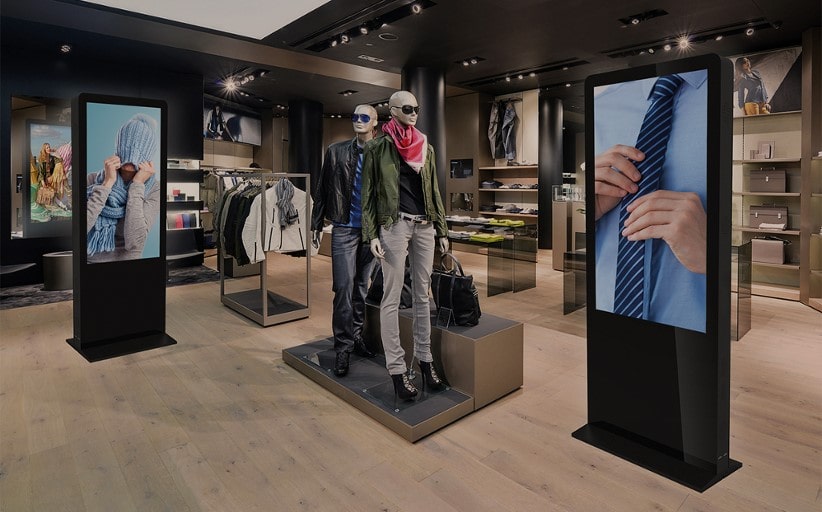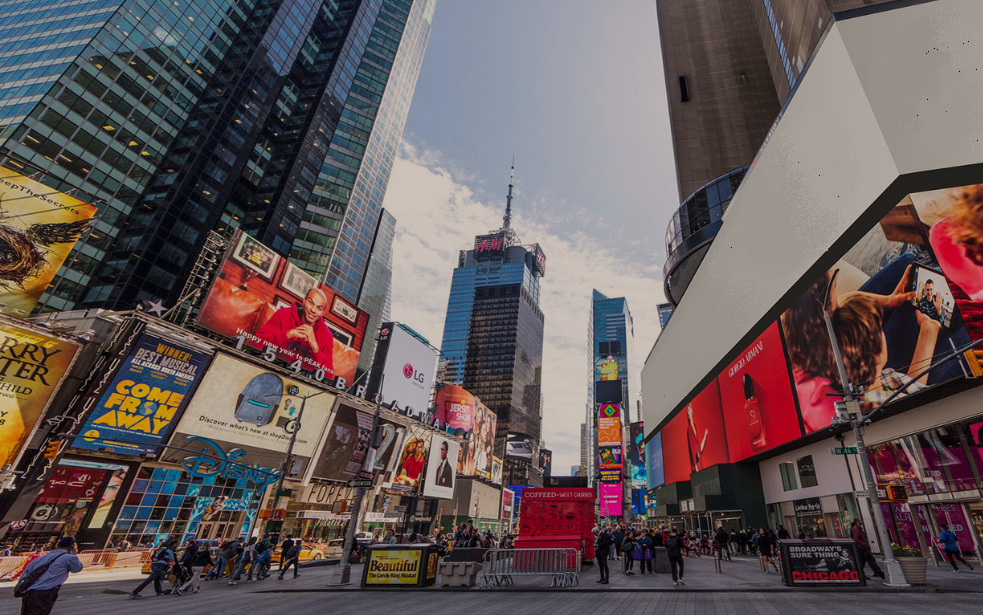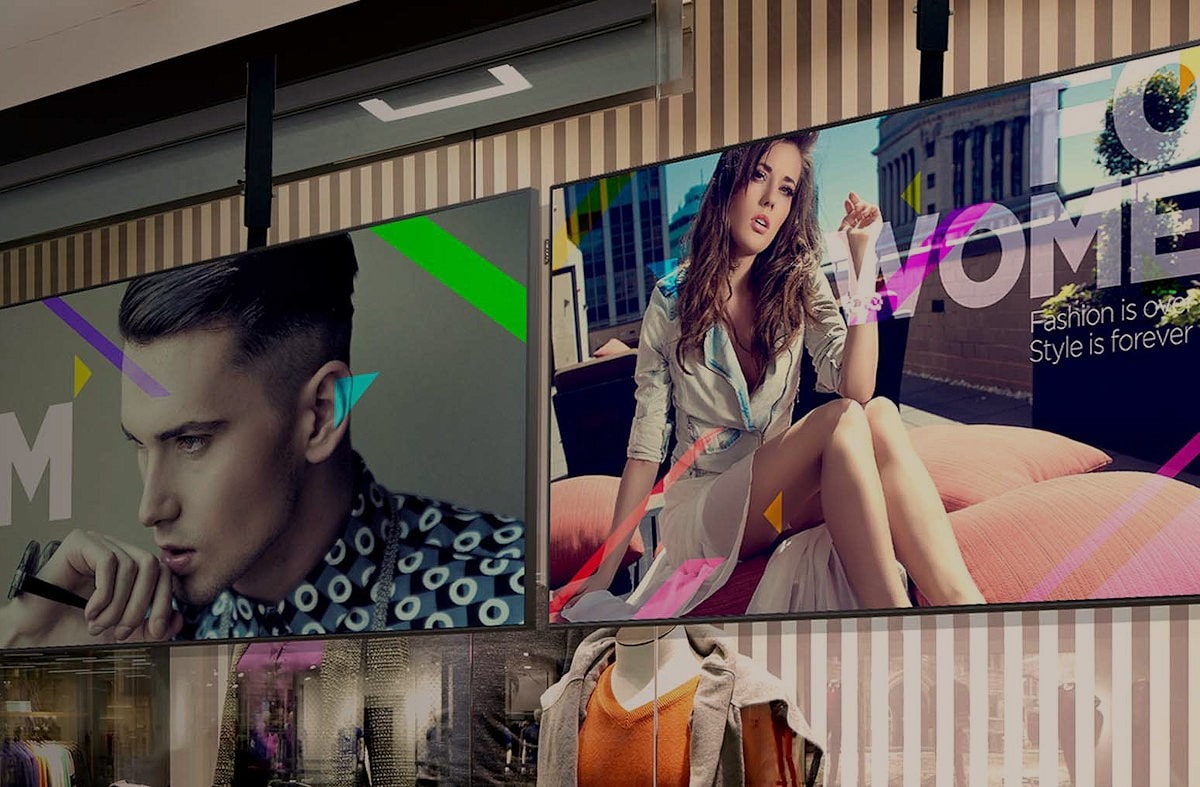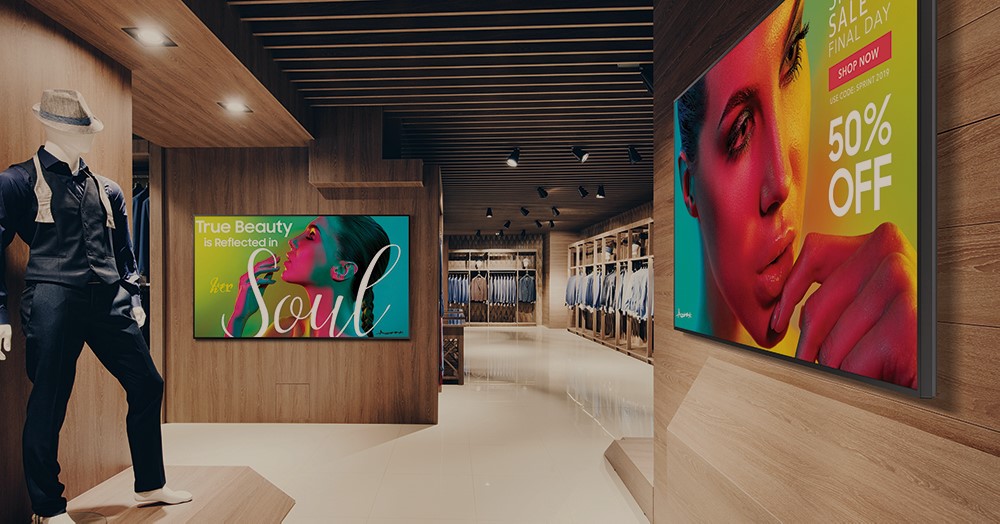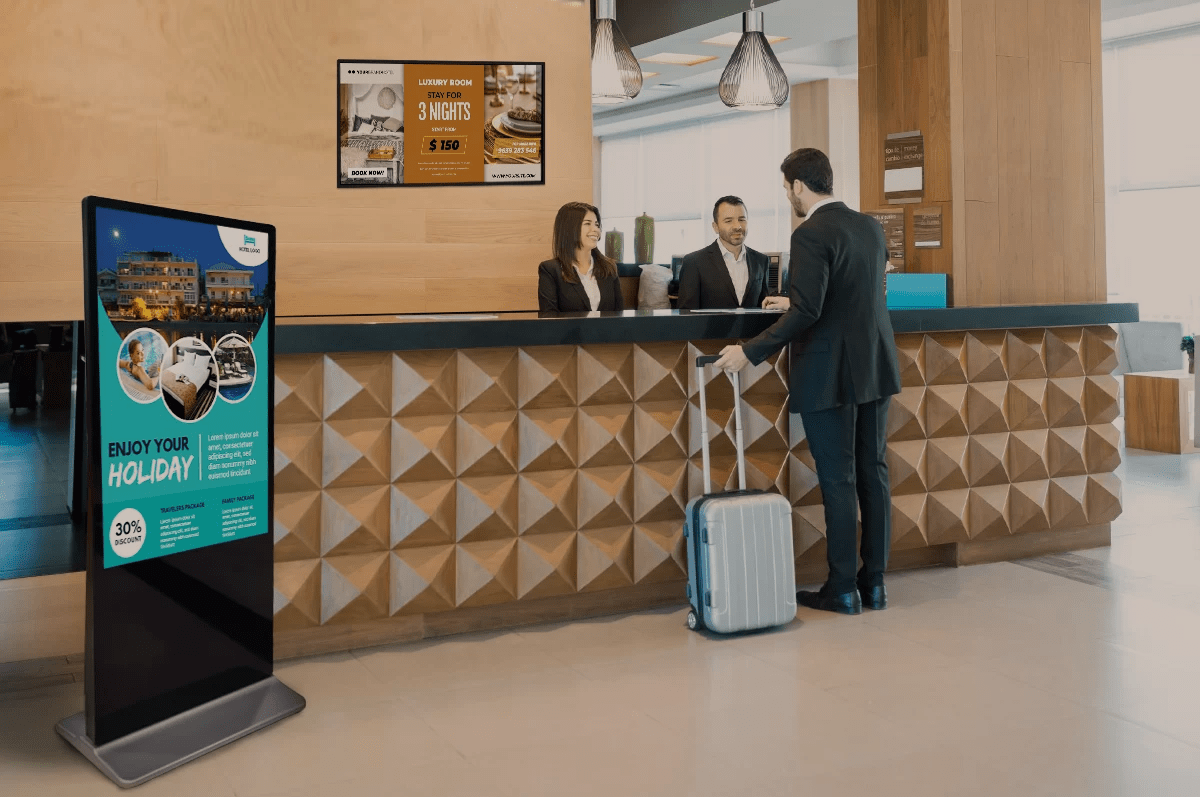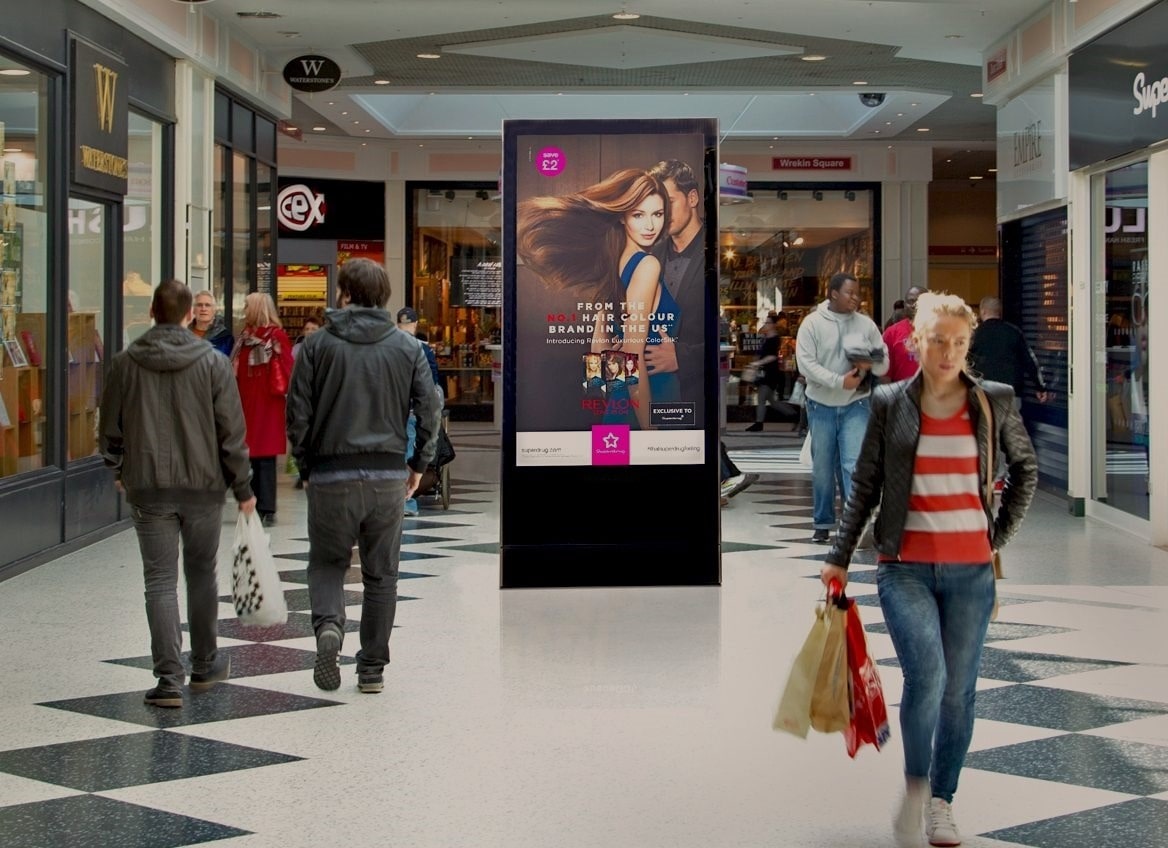Digital indoor advertising is closest to the shelf with goods in 2024
Digital indoor advertising: in the modern pace of life, when business competition is immense, creating an effective and captivating advertising campaign is more important than ever.
However, to be noticed and stand out from others, it is essential not only to attract attention but also to provide useful and interesting information. Among the innovations in the advertising industry, digital indoor advertising is most effectively approaching the shelves with products, offering advanced solutions to engage customers.
Indoor advertising is the promotion placed inside premises. It can be any internal advertising: brochures in supermarkets, posters in clinic lobbies, video screens in sports complexes, audio clips from speakers in shopping malls. Anything located inside is considered indoor, in contrast to outdoor, which encompasses everything outside. Thus, a plasma screen with advertising inside a shopping mall is indoor, while a plasma screen on the facade is outdoor. Moreover, the same video clip can be displayed in both scenarios.
Indoor advertising is becoming increasingly popular due to its targeted approach to the indoor audience, where it can be more effective and attractive to consumers. Technological solutions, such as video screens and audio systems, make this type of advertising dynamic and captivating. Advertisers can create targeted campaigns using indoor advertising to precisely convey their message to the target audience inside the premises.
One of the key components of successful digital indoor advertising is the use of high-quality digital signage software. This allows creating attractive and dynamic content that easily captures the attention of shoppers. With digital signage software, advertisers can easily control and update information, adapting it to current events and special offers.
The indoor advertising environment, or indoor, covers any premises with high foot traffic, from airports and train stations to office and entertainment centers, shops, pharmacies, banks, and universities, even elevator cabins.
Indoor advertising comes in various formats, such as audio clips, videos, lightboxes, posters, and banners. In fact, most POS materials can be classified as indoor advertising since they are primarily placed inside buildings, such as on supermarket shelves.
As businesses seek innovative ways to engage customers, digital indoor advertising, powered by cutting-edge digital signage software, emerges as a versatile and impactful solution to deliver compelling messages directly to the target audience inside premises.
Indoor advertising includes formats such as
1. Multimedia – digital video advertising on screens, promotional stands, bank terminals, including Indoor TV – continuous advertising playback in the shopping area.
2. Audio advertising – audio clips with advertisements played in the form of announcements in the shopping area or embedded between music blocks on Indoor radio waves.
3. Static POS structures, from lightboxes and shelves to jumbos and semi-transparent graphics.
4. Printed materials – stickers, posters, leaflets, brochures, advertising booklets.
Overall, the use of digital indoor advertising with high-quality digital signage software and technological solutions such as digital signage players for indoor TV and media facades for shopping malls sets new standards in the advertising industry. It is not just a means of attracting attention but also a strategic tool for effectively influencing consumer behavior, making digital indoor advertising the closest to the shelves with products in the retail environment.
However, equally important is the infrastructure used for playing advertising content indoors. Players for indoor TV, as well as specialized players for Indoor radio, are essential elements of this process. Their task is to ensure quality content playback, make it accessible to a large audience, and ensure the seamless operation of digital indoor systems.
Advantages and disadvantages of indoor advertising
When choosing an advertising campaign format, it is important to consider both positive and negative aspects. Here are the advantages of indoor advertising:
Advantages of indoor advertising
1. Targeted placement
Such advertising is always placed where there are large crowds of people or high foot traffic. For example, advertising is strategically located, figuratively speaking, near your cash register; for instance, a plasma screen plays a discount video right above the entrance to your store. Consequently, the path from viewing the advertisement to making a purchase is short and direct, unlike TV or radio advertising.
2. Resistance to natural phenomena
Indoor advertising media are not subject to natural phenomena; they are located indoors under a roof, and vandalism is less likely to occur – who would destroy a screen in the middle of a mall under surveillance cameras? The advertisement works longer, and more people will see it.
3. Entertainment potential
Indoor advertising has entertainment potential – people can watch advertising videos while waiting in a clinic queue, listen to advertising jingles while waiting for friends in a shopping mall, study posters while the elevator counts floors. Of course, smartphones and social media have significantly undermined the position of Indoor advertising. Nowadays, everyone is immersed in their screens. But there is a chance to grab attention and even appeal to a buyer with an interesting video.
With the development of digital signage software, players for Indoor TV, and media facades for shopping malls, Indoor advertising can acquire new functionalities and a variety of formats, increasing its attractiveness and effectiveness in the competitive marketing environment.
Disadvantages of indoor advertising
The main disadvantage is that with a gigantic reach of indoor advertising, there can be a situation of shooting sparrows with a cannon. For example, in a shopping mall or at a train station, the coverage may be quite substantial, but it remains unknown how many of our target customers will pass by the advertisement during the day. On the other hand, this is a normal situation – the larger the coverage, the smaller the percentage of the required target audience. This can be accounted for. If you place an advertisement for a medication on a screen in a pharmacy – the chances of attracting the right people will be higher.
It is also challenging but possible to calculate the effectiveness of indoor advertising placement. Currently, DOOH format is gaining weight, which is quite targeted and has effectiveness metrics.
How to increase the effectiveness of direct indoor advertising
1. Display ads at the right time and in the right place.
2. Entertain rather than just inform and promote.
3. Address the problem that a person has right now and that can be solved immediately, literally around the corner – buy medicine, grab a snack, leave a smartphone for repair.
With the use of digital signage software, digital signage players for indoor TV, and media facades for shopping malls, greater accuracy and effectiveness in indoor digital advertising can be achieved, providing a more significant impact on the target audience.
Media facades for shopping and entertainment centers TRCs are becoming an increasingly popular solution for attracting shoppers’ attention. These large interactive screens allow for creating unique advertising campaigns that effectively capture attention and leave a vivid impression on consumers.
Digital indoor advertising also opens up new opportunities for advertisers to interact with their audience. Personalization and targeting of advertising campaigns become accessible through the integration of digital signage systems. With these tools, advertising can become more tailored and efficient, targeting specific consumer groups.
The growing popularity of indoor advertising is not only due to the variety of formats but also the transformation of spaces and improved communication with the audience. The use of digital signage software and players for Indoor TV enables the creation of dynamic and effective content, capturing consumers’ attention in diverse environments.
Digital signage players and Indoor TV players are used not only for broadcasting advertising videos but also for other useful informational materials, such as news, weather updates, recommendations, and promotions. This provides an opportunity to create a comprehensive informational hub in the space, where shoppers can receive useful and timely information.
Digital signage systems expand the possibilities of interacting with customers by utilizing innovative face recognition technologies and interactions through mobile applications. This not only increases the level of advertising personalization but also creates more active engagement of shoppers with the brand.
In the modern world, where market competition is fierce, it is crucial to elevate your business to a new level. The use of indoor advertising and the adoption of advanced technologies become key elements of a successful marketing strategy, ensuring effective interaction with consumers and creating a unique brand experience.
Advision is a cloud-based Digital Signage software for remote control and scheduling of broadcast video and audio content. We help offline businesses and advertising companies automate workflows and implement a robust Digital Signage infrastructure using our own software and hardware solutions.
Contact us, and we will help you implement the most modern technologies to solve your problems!
Share the news
